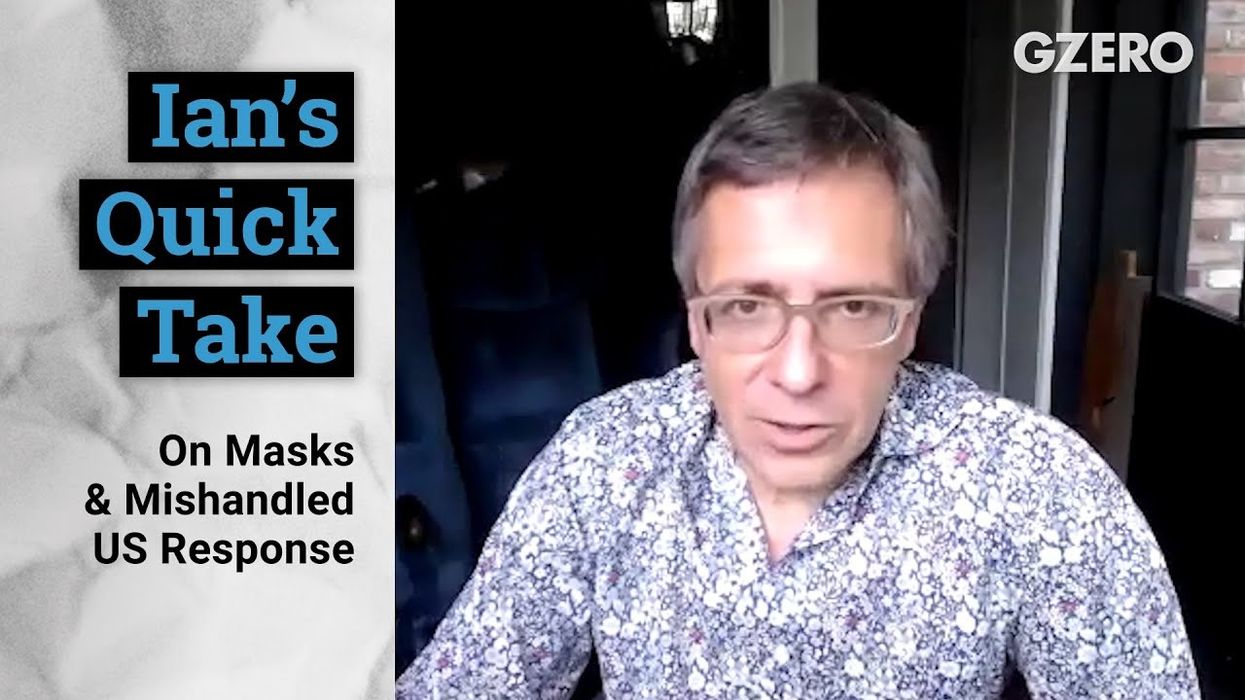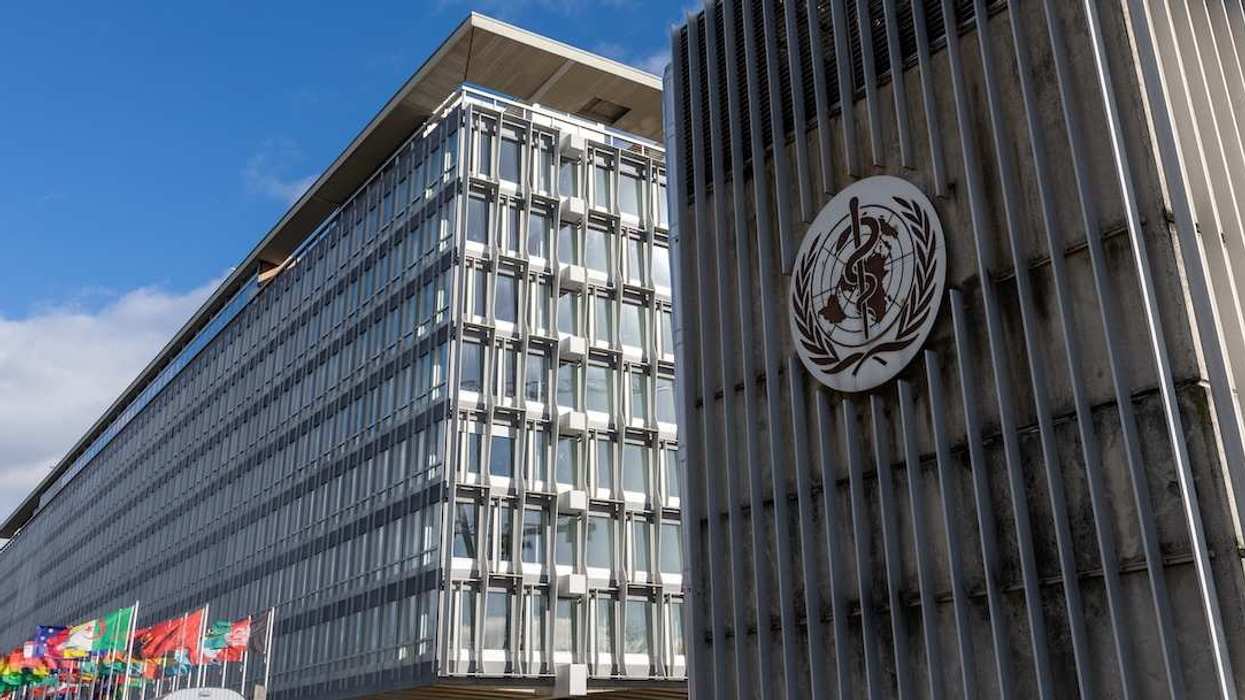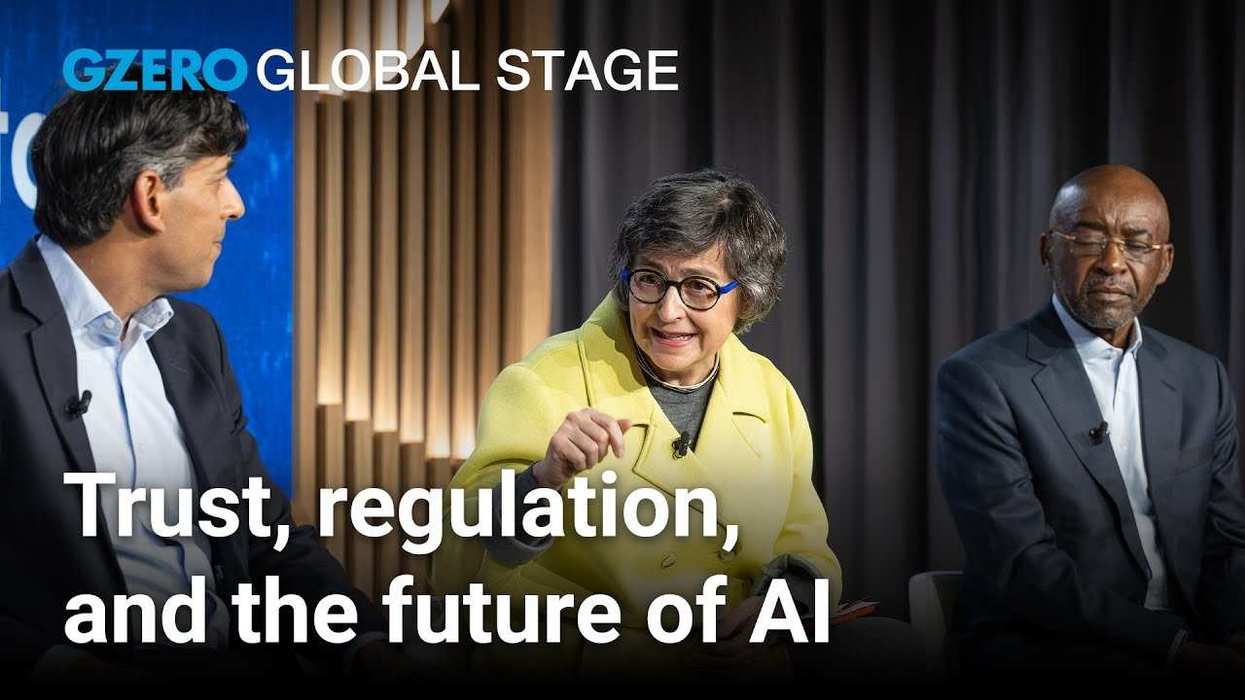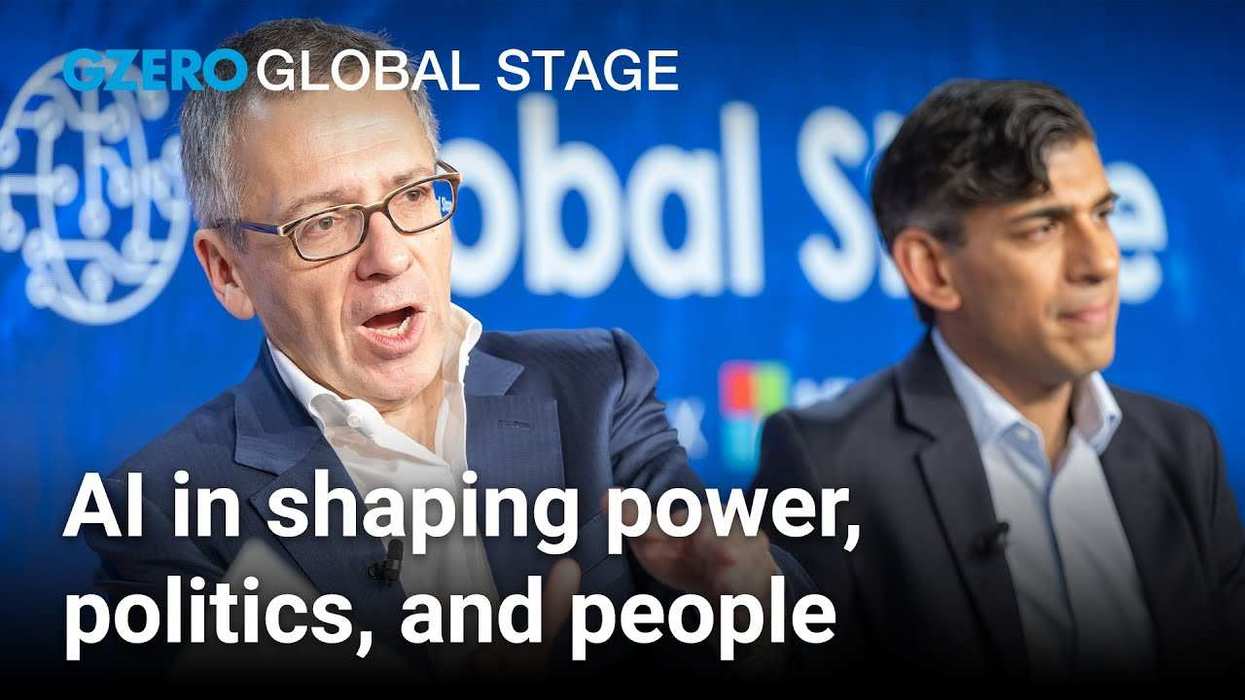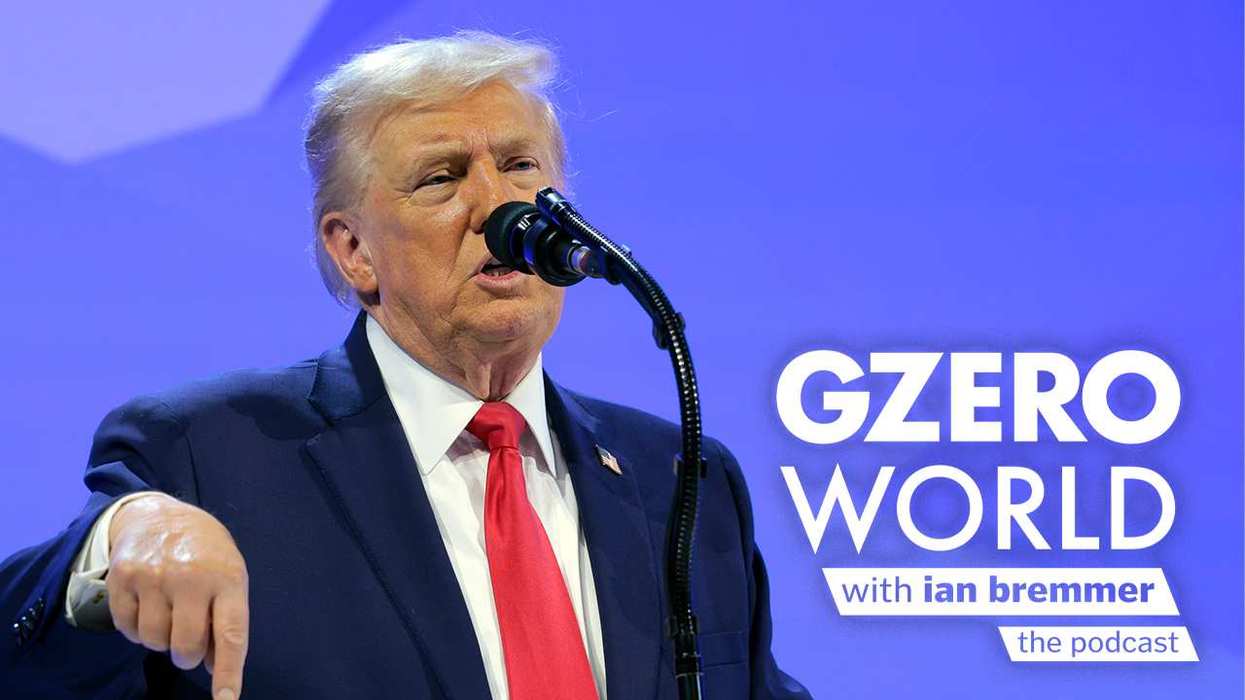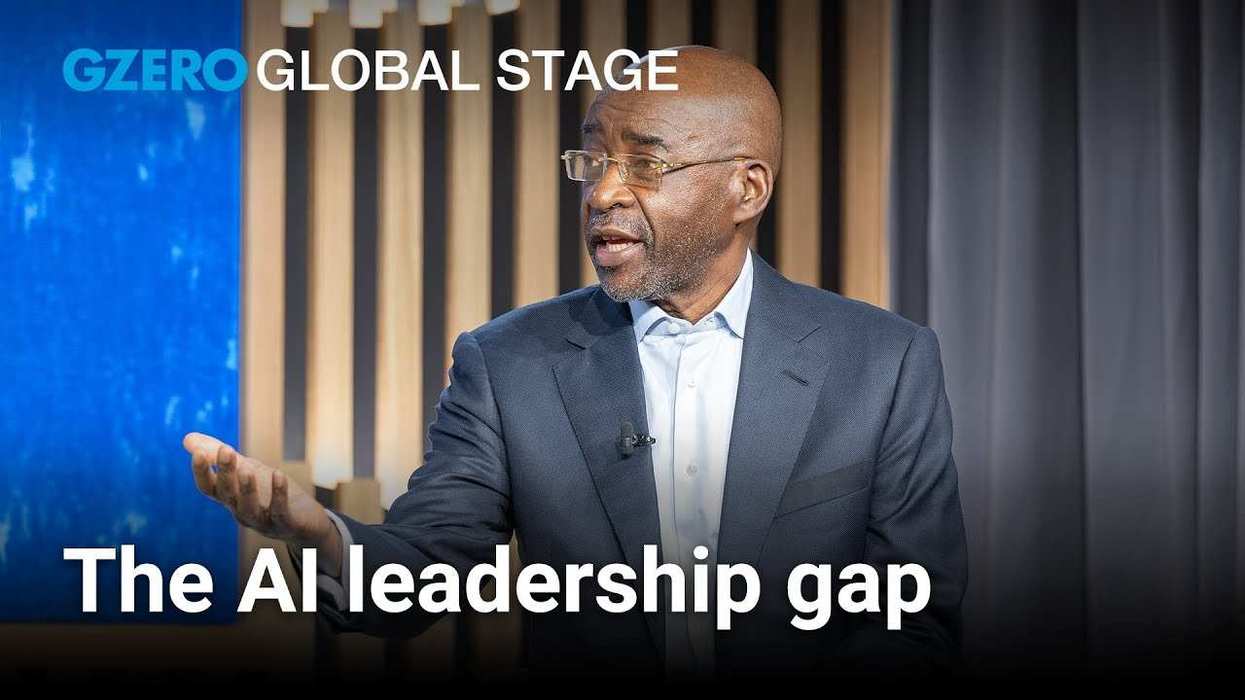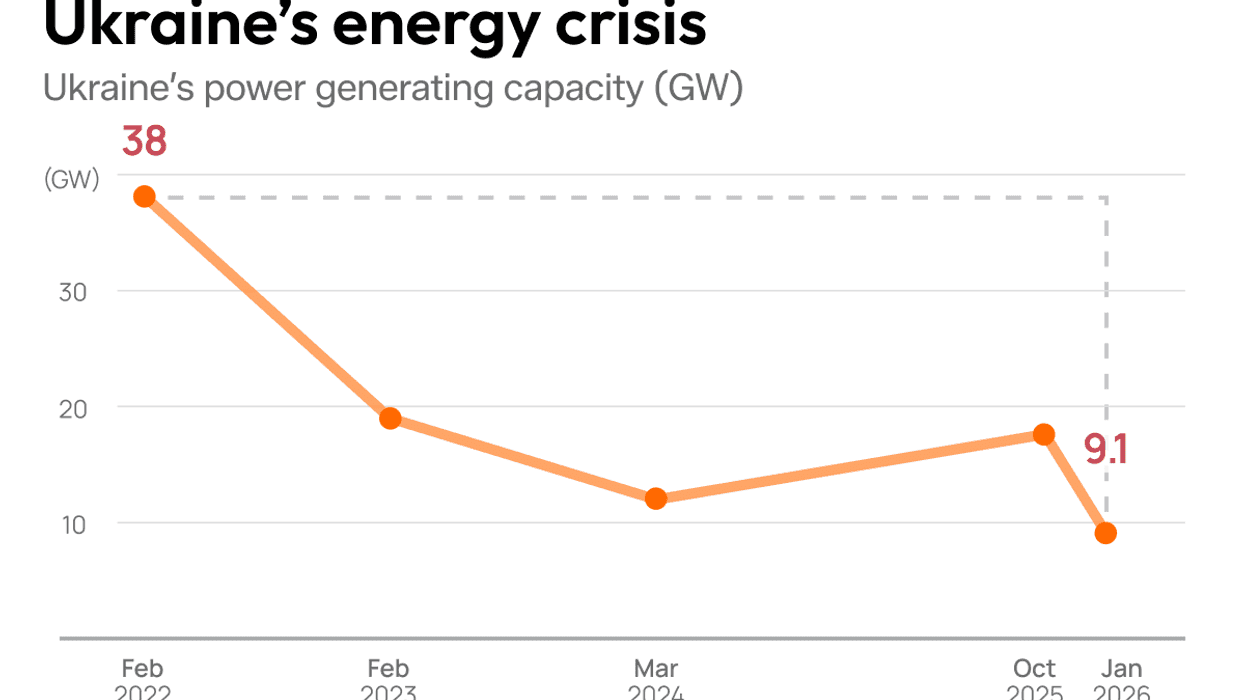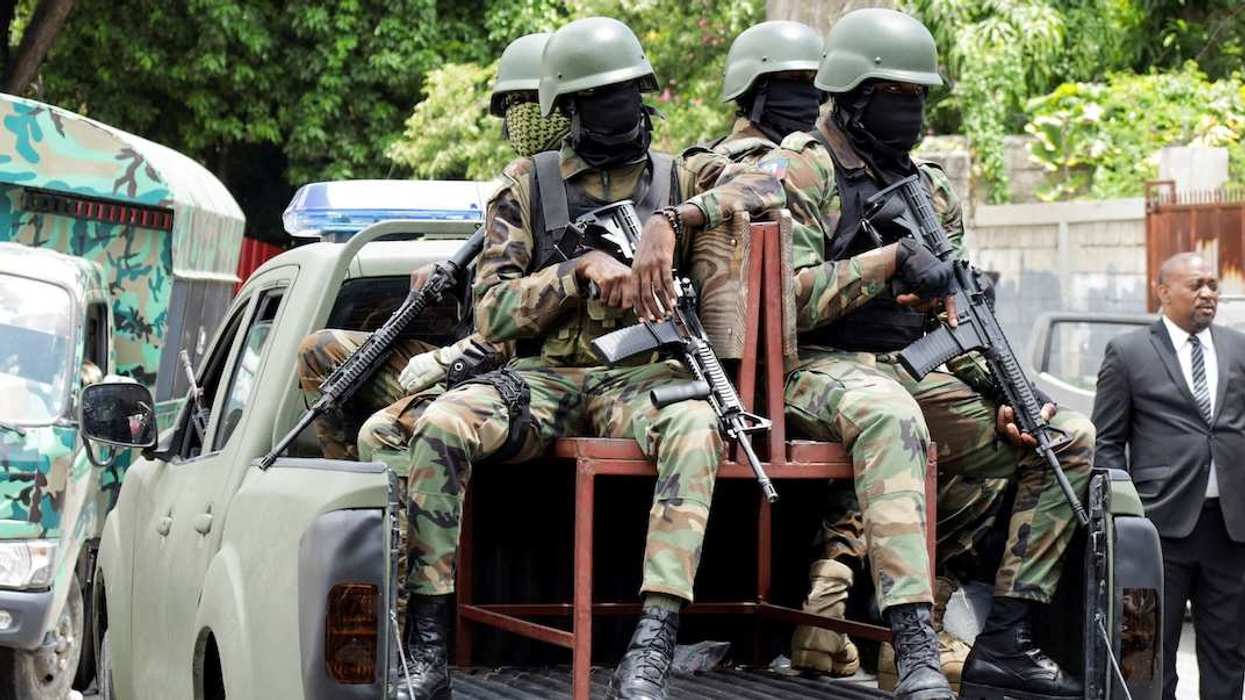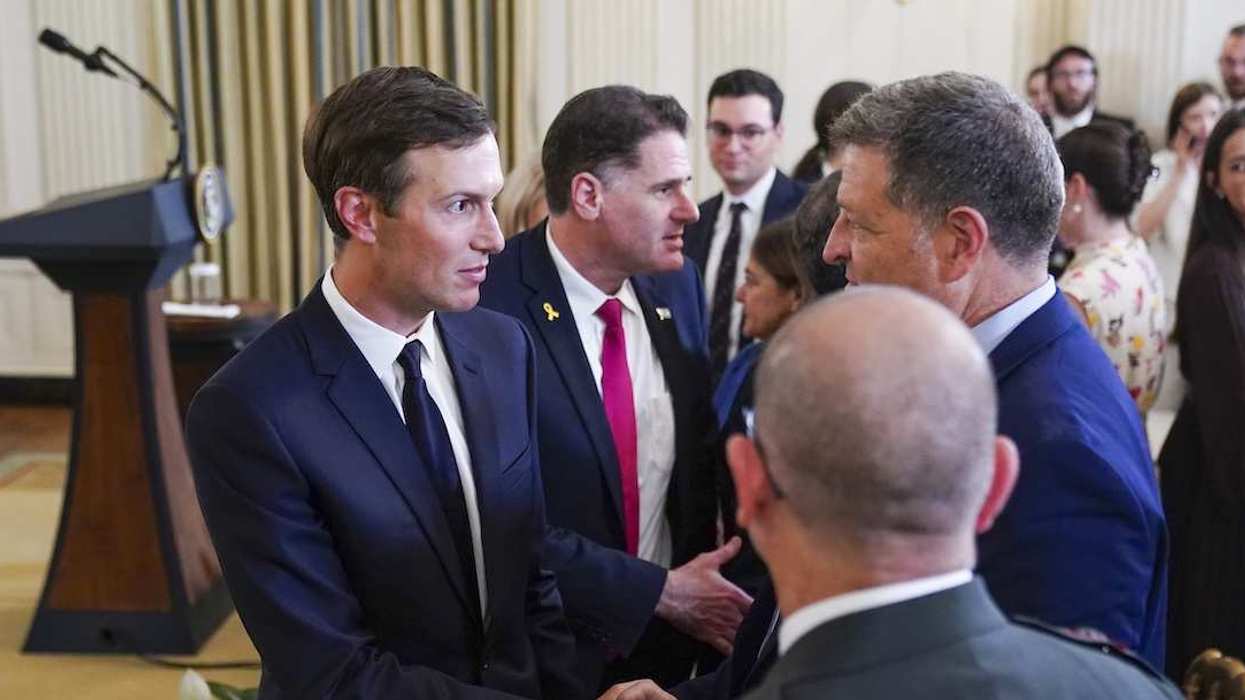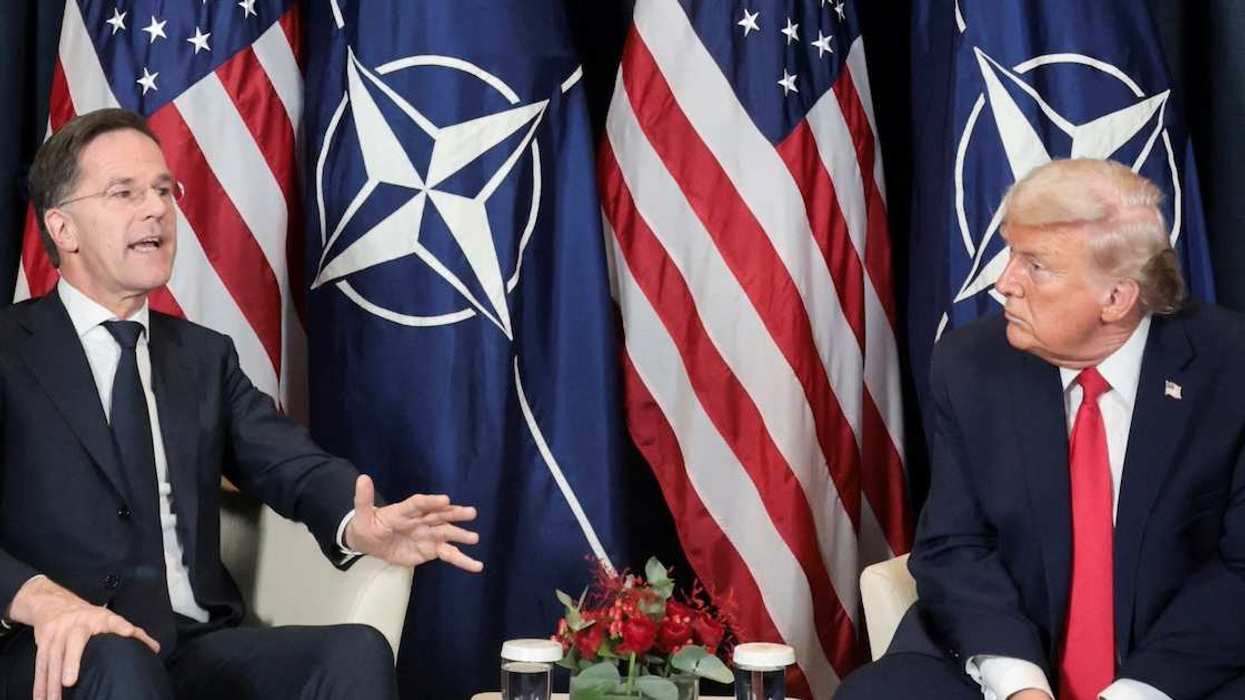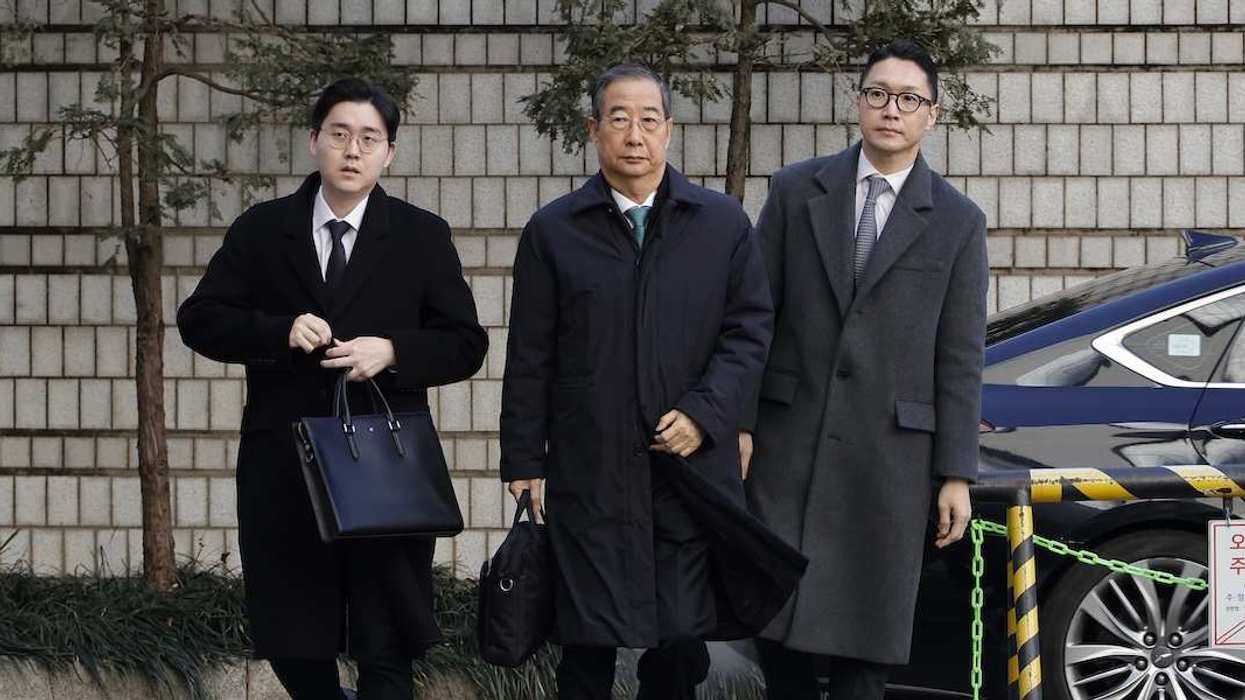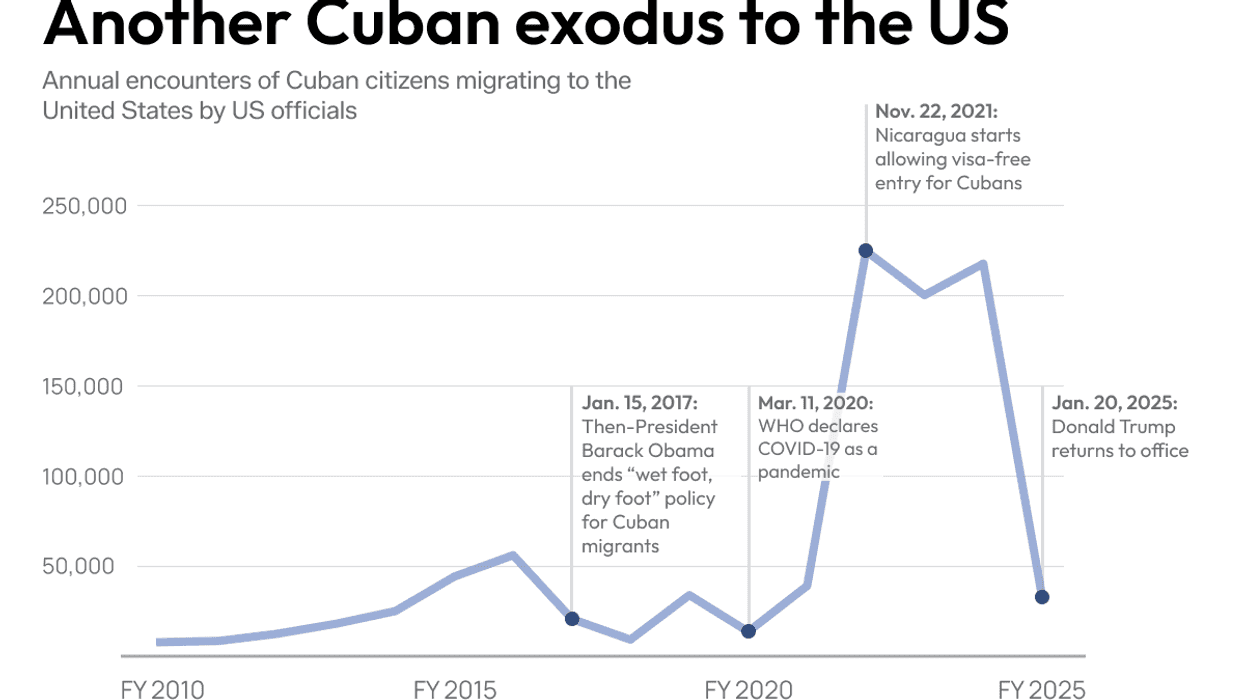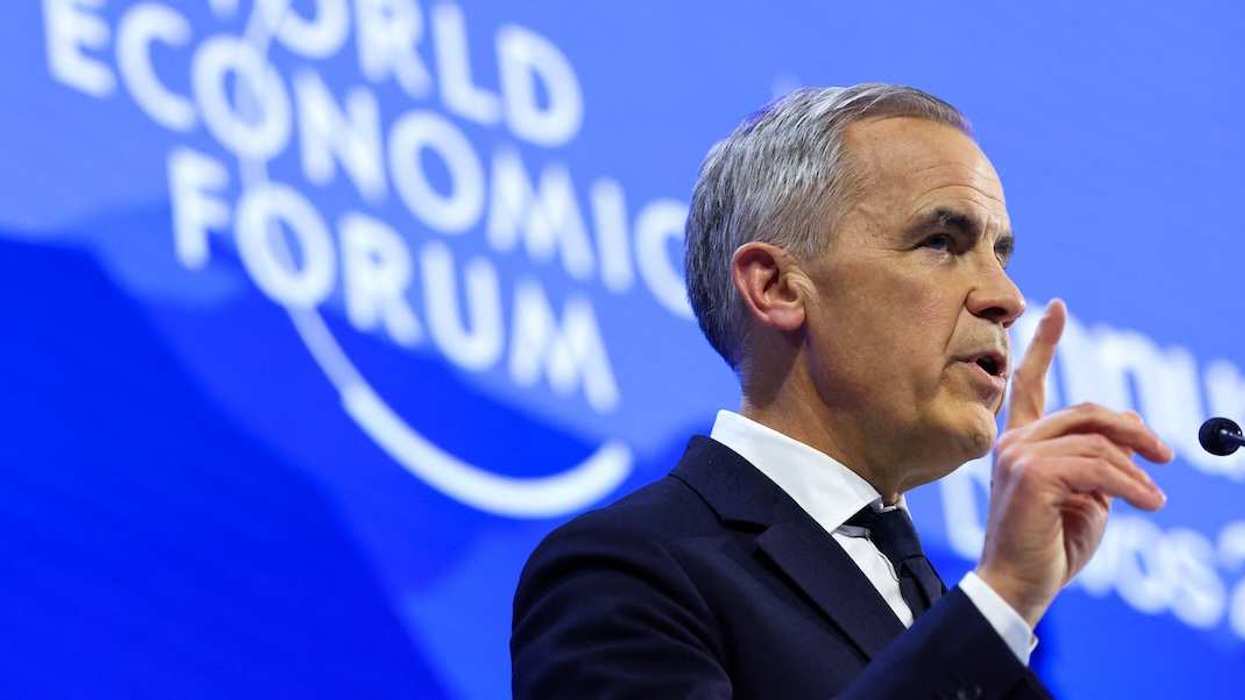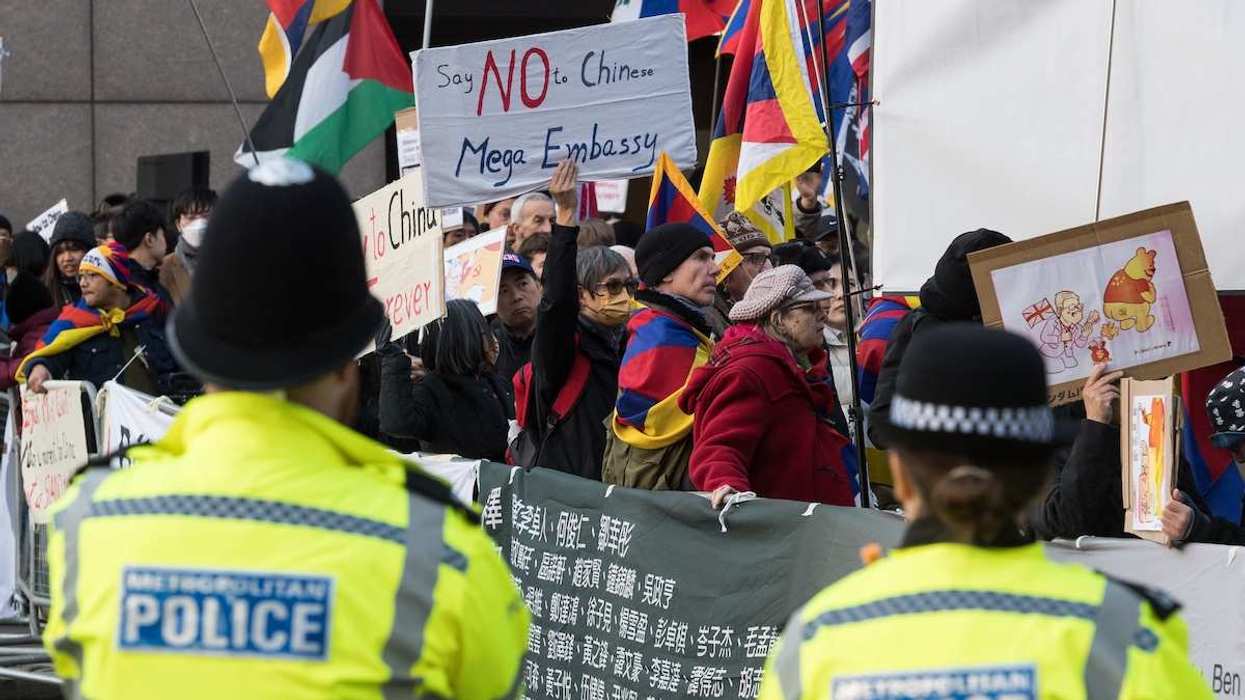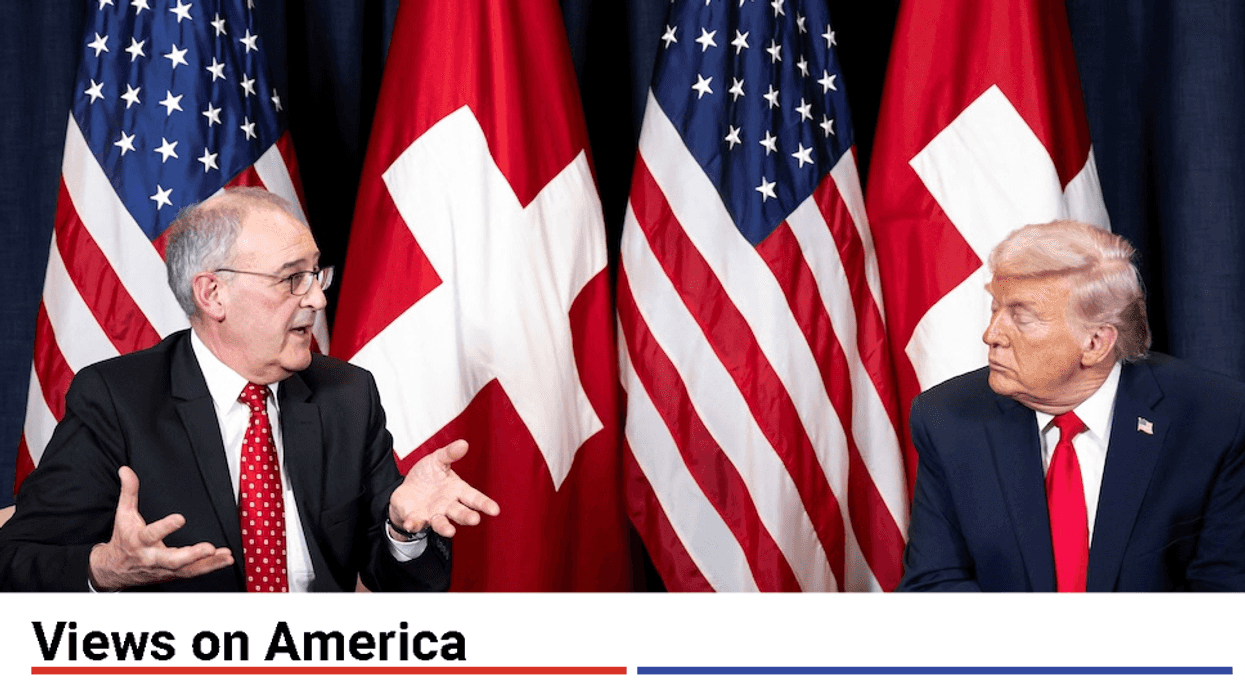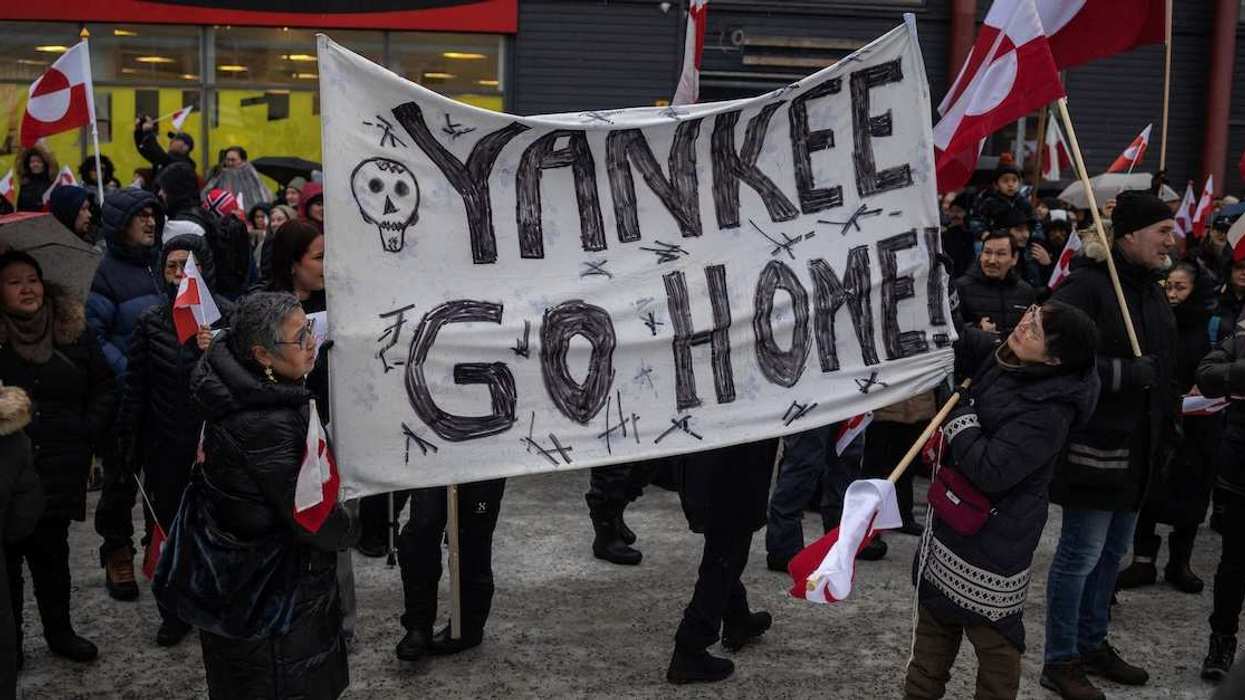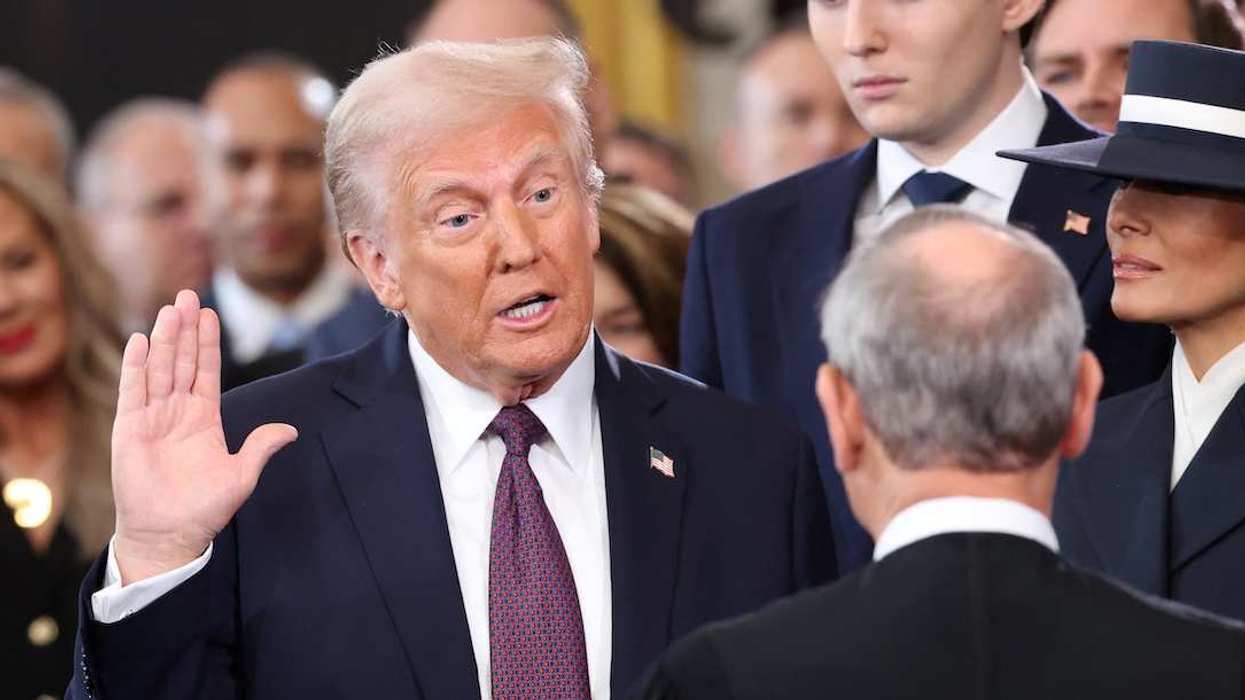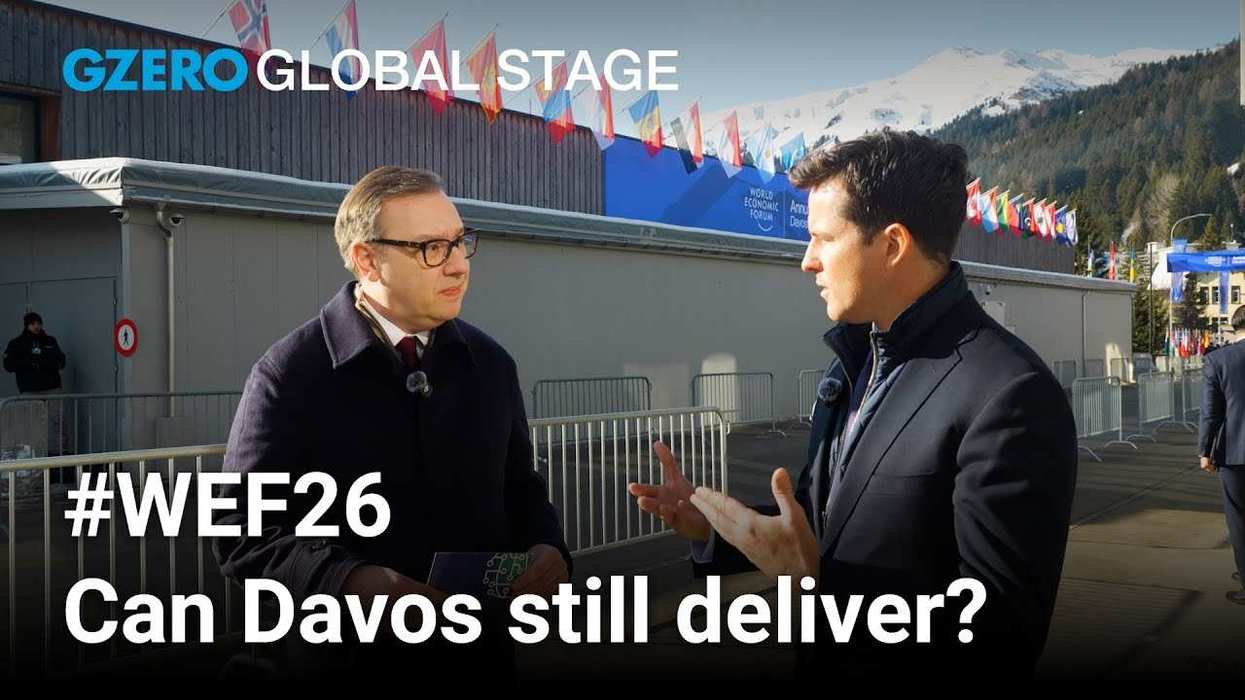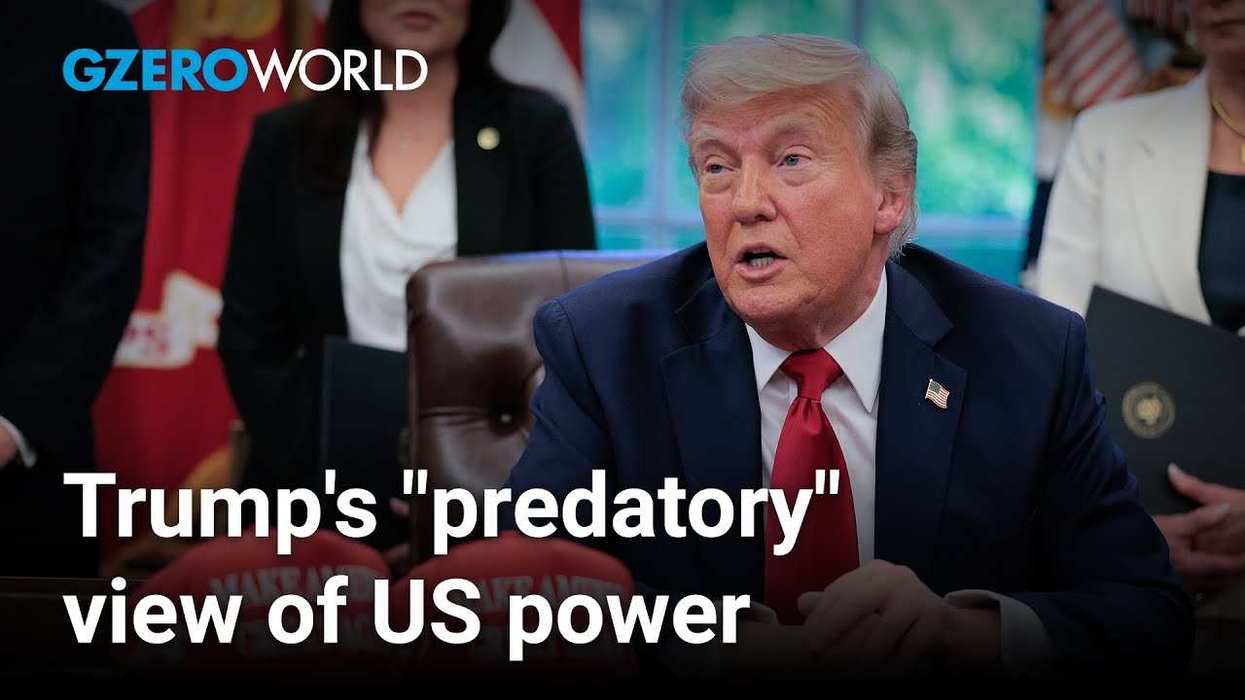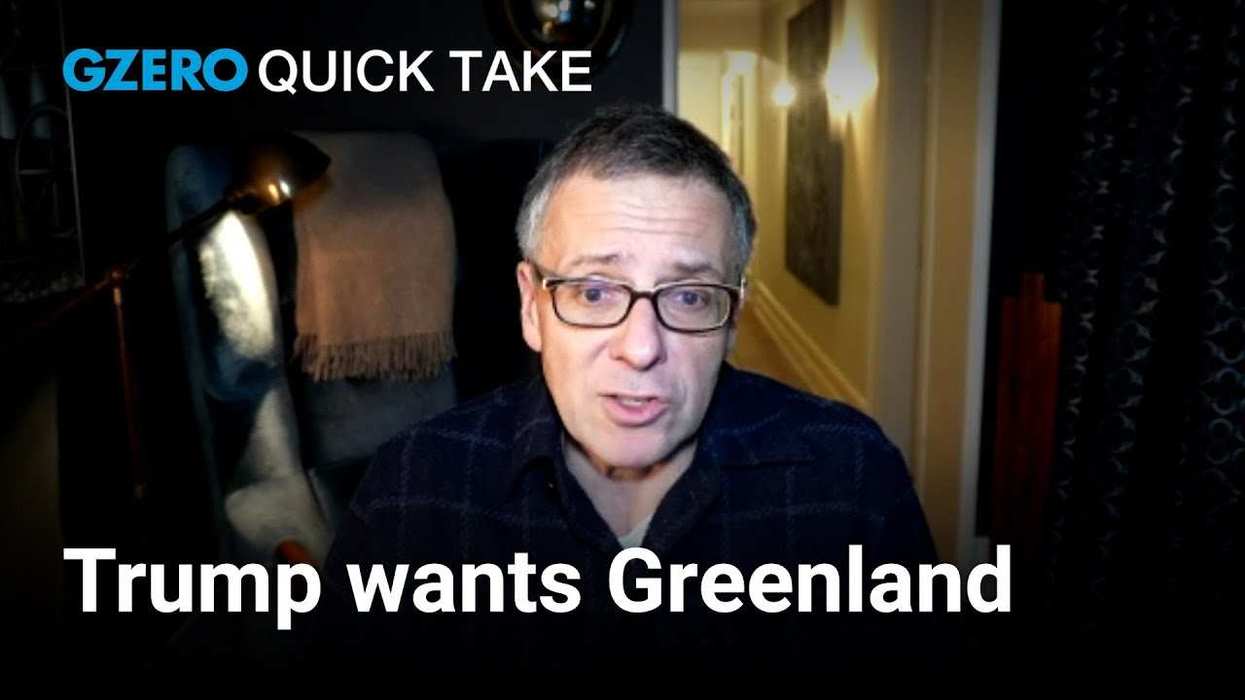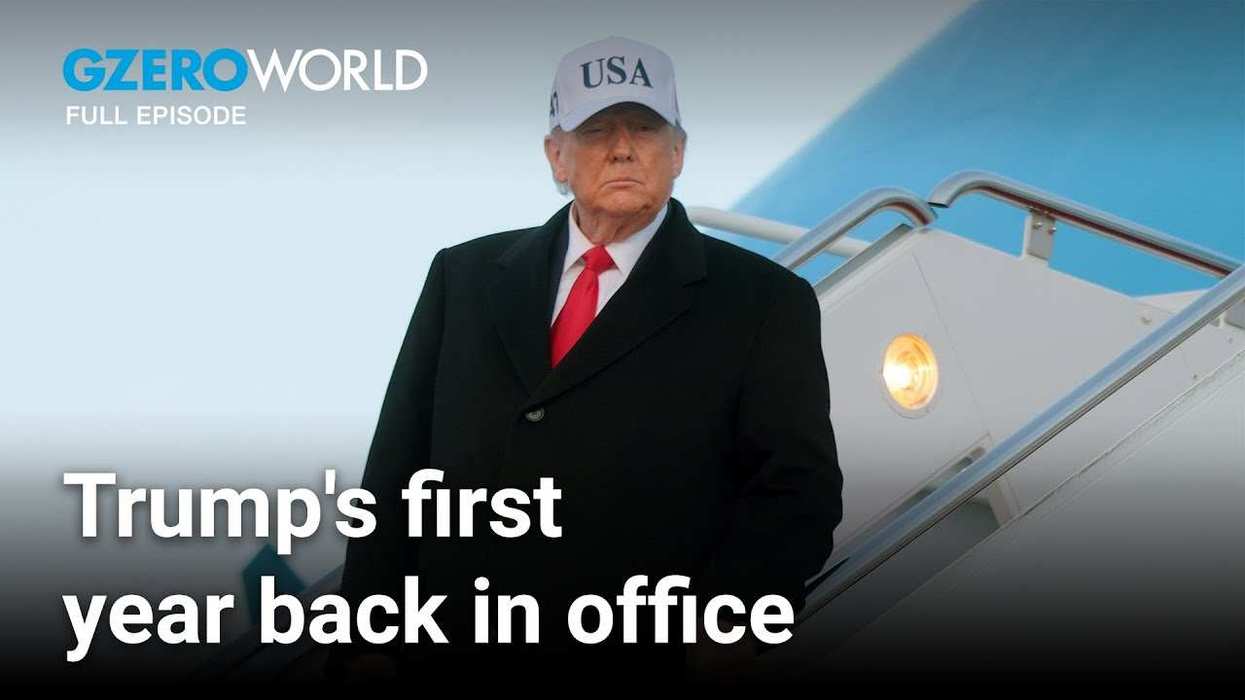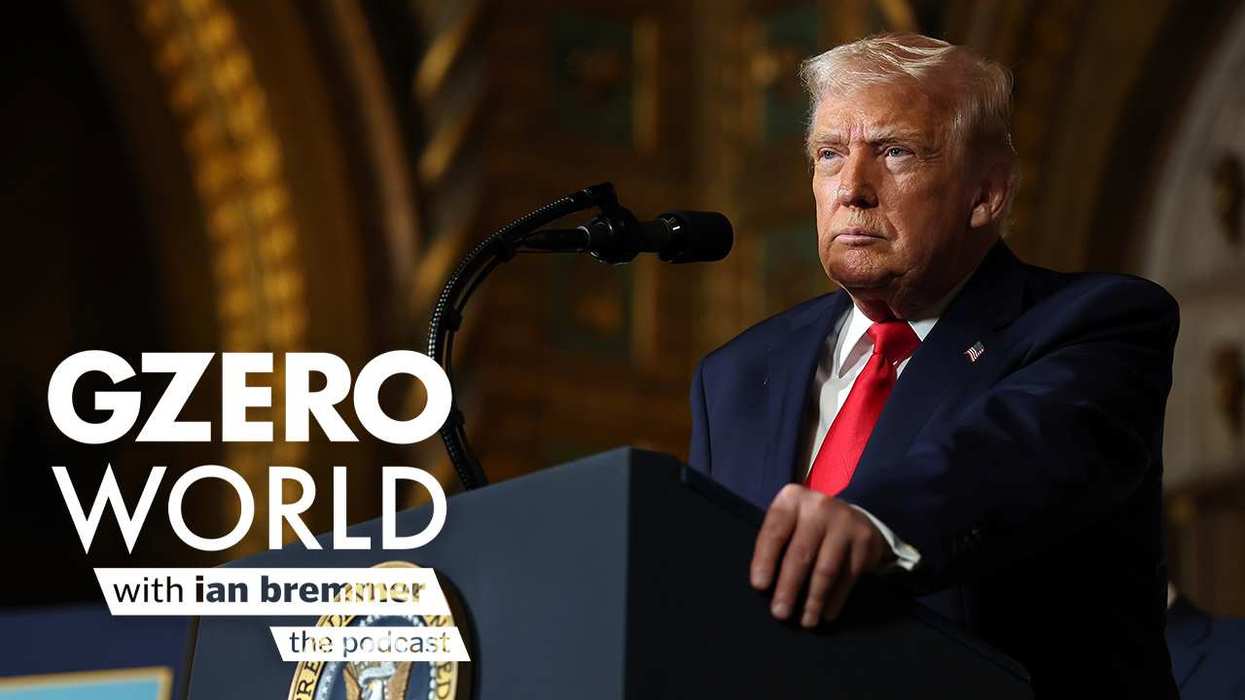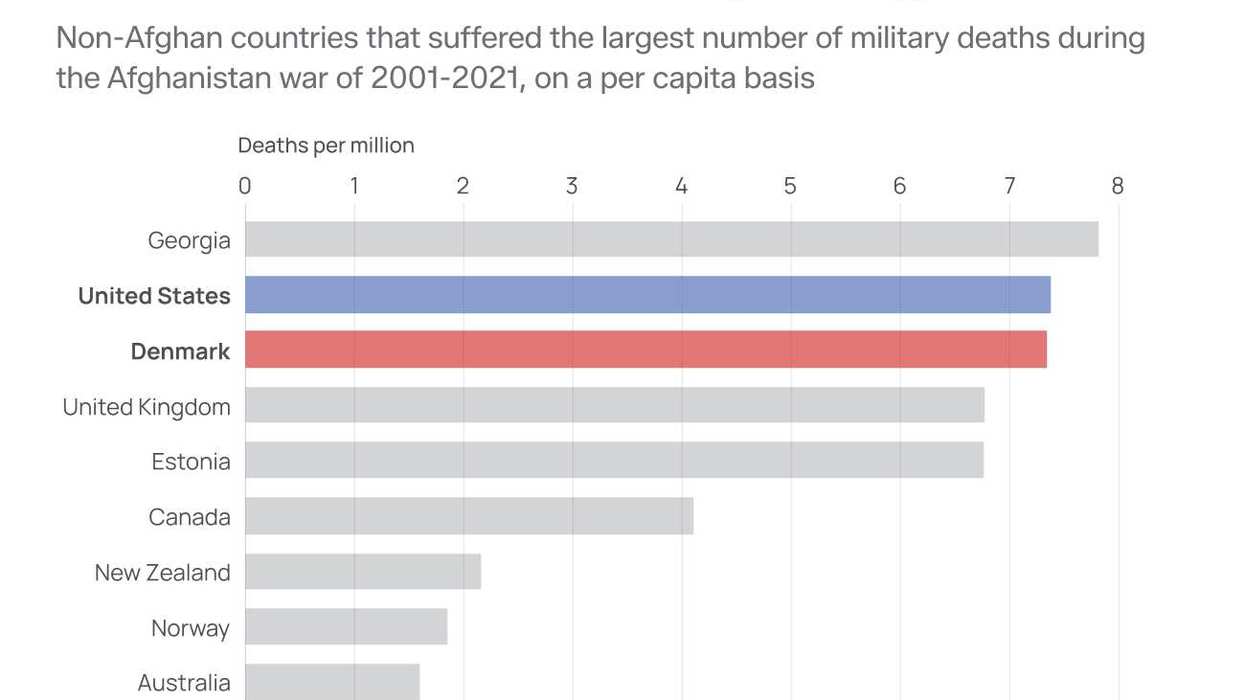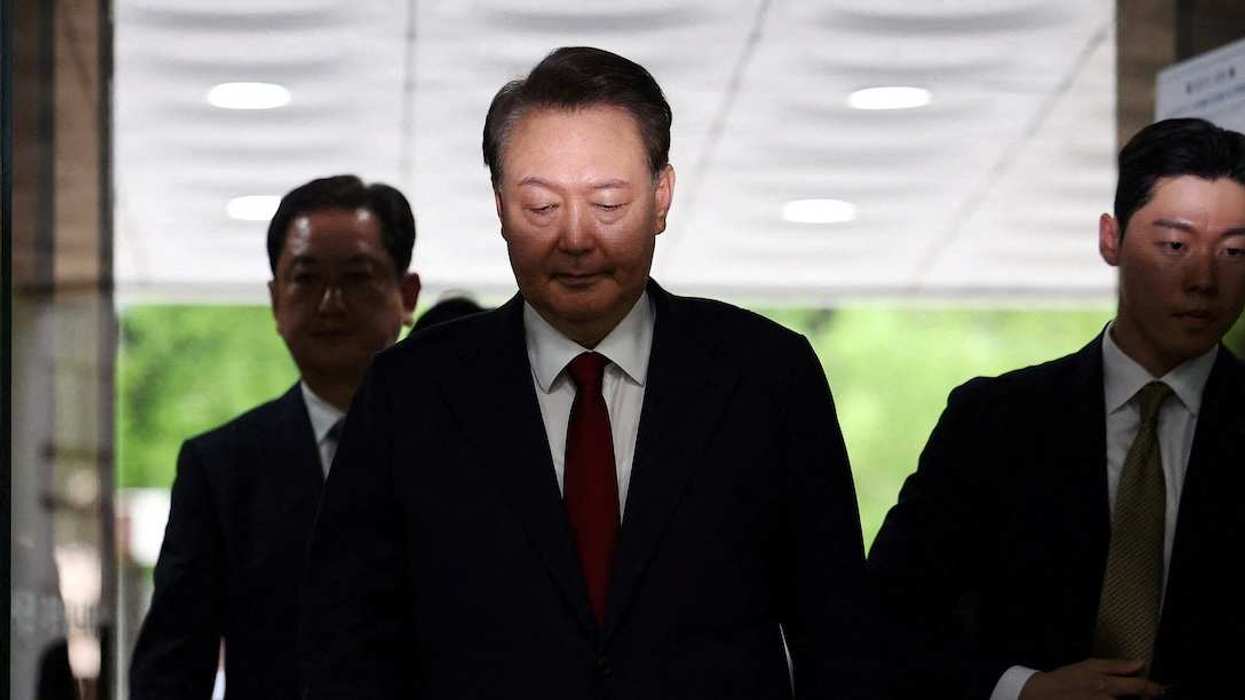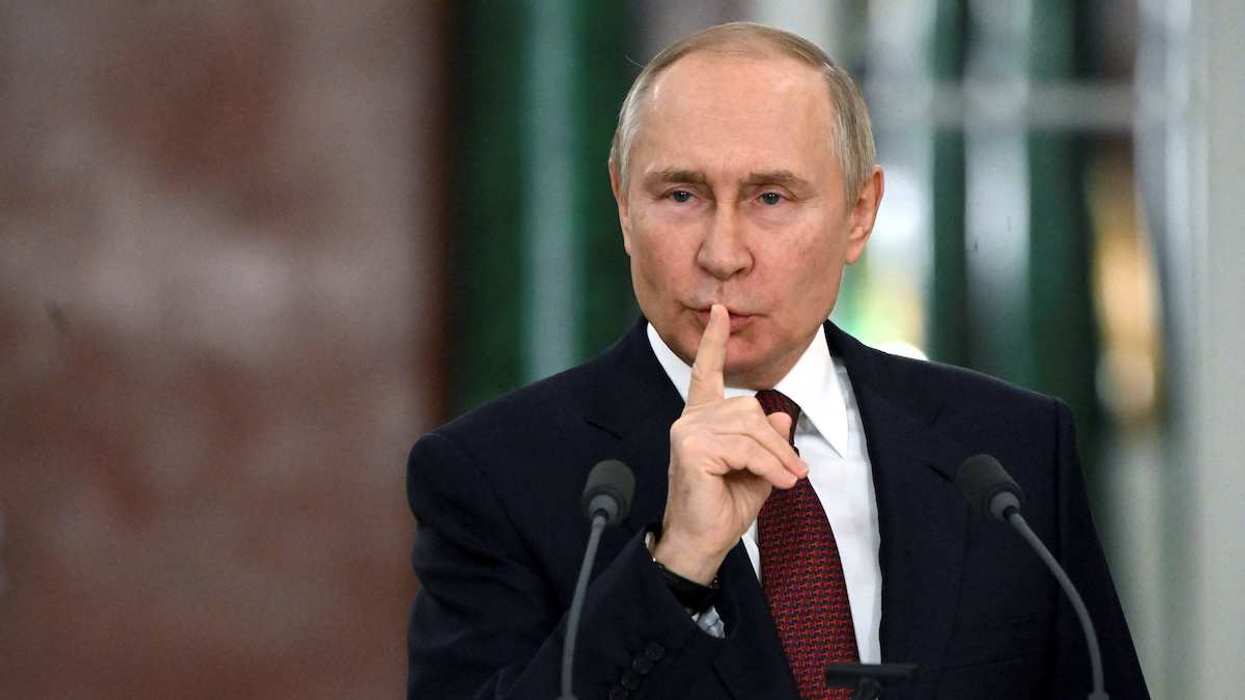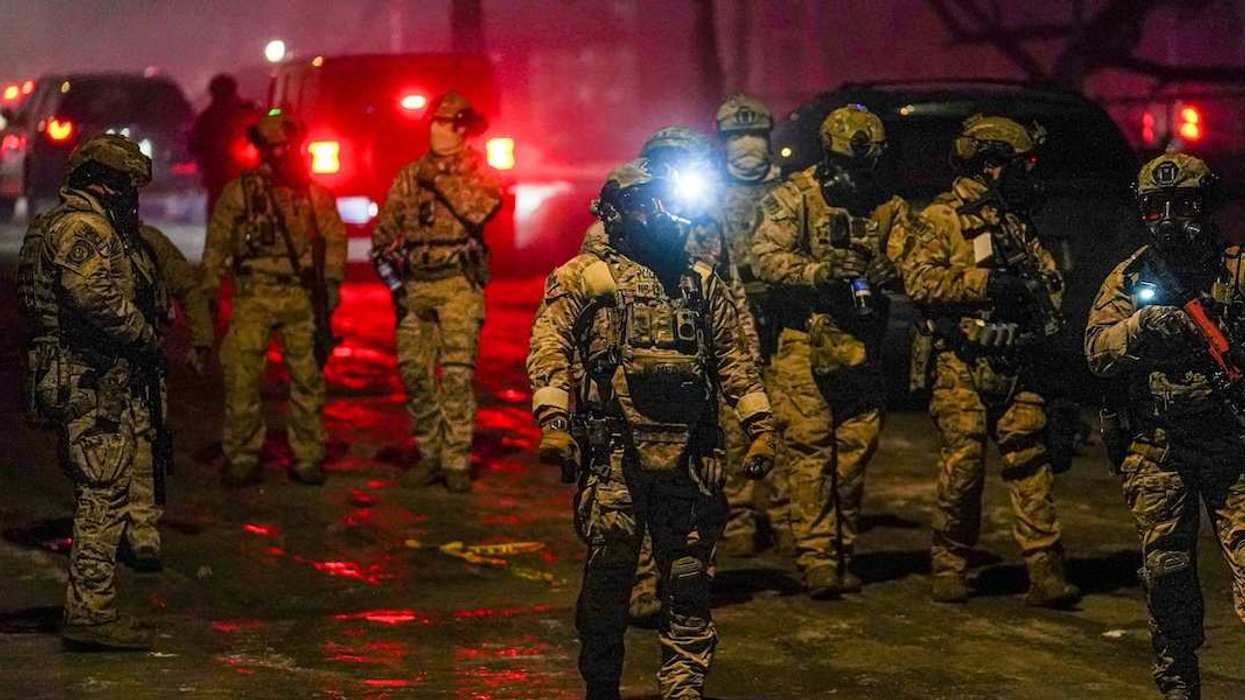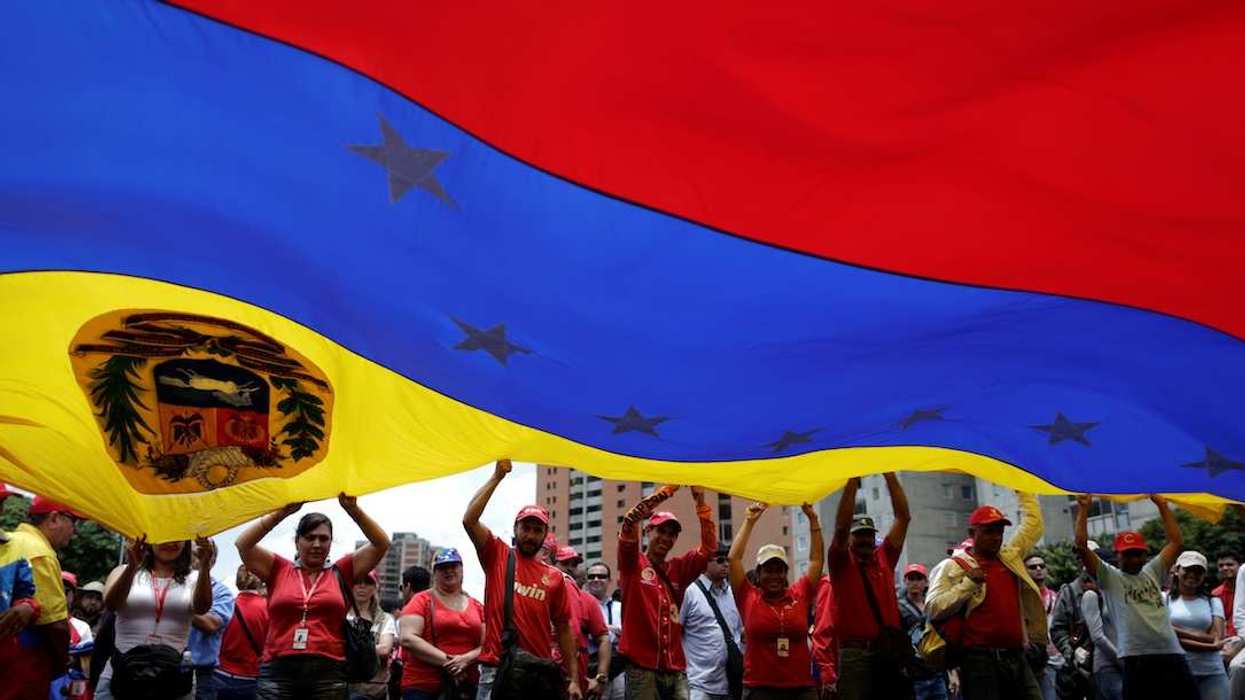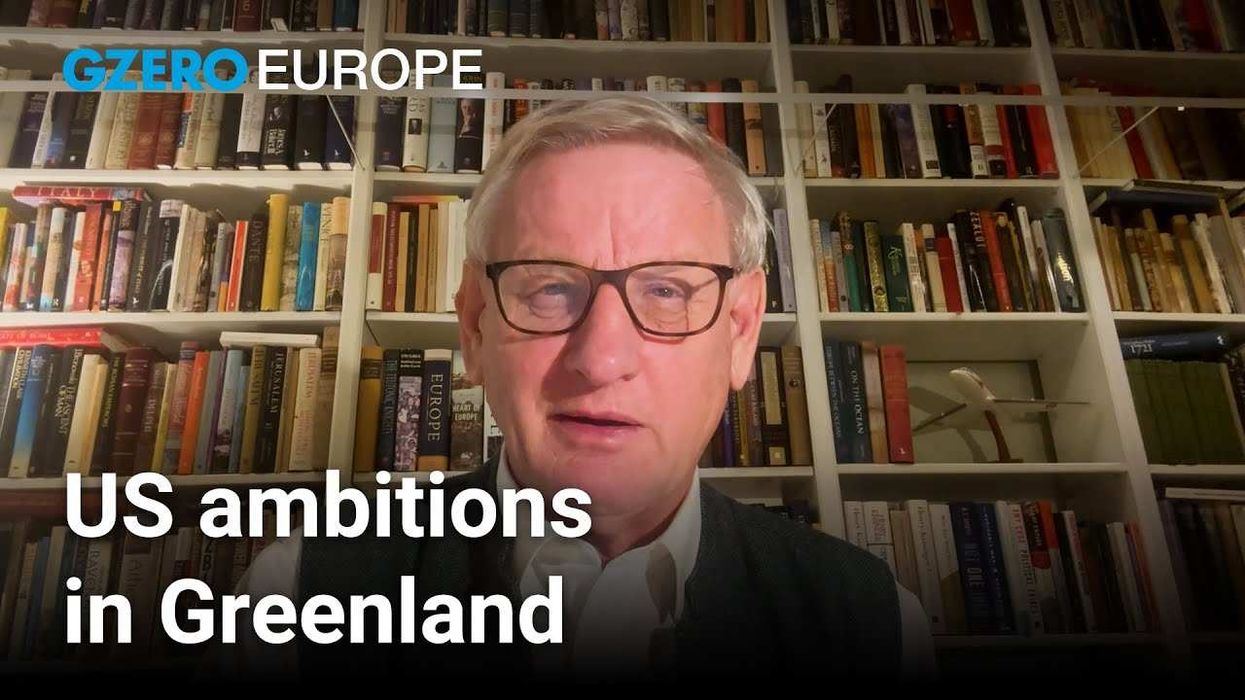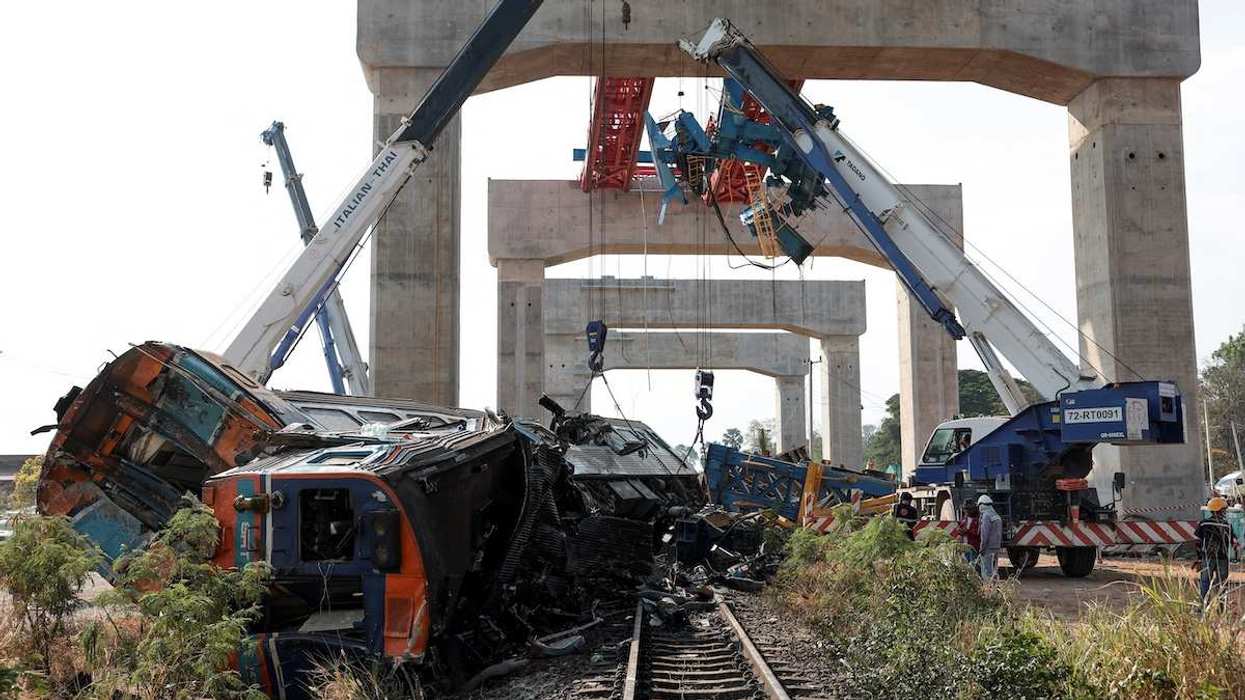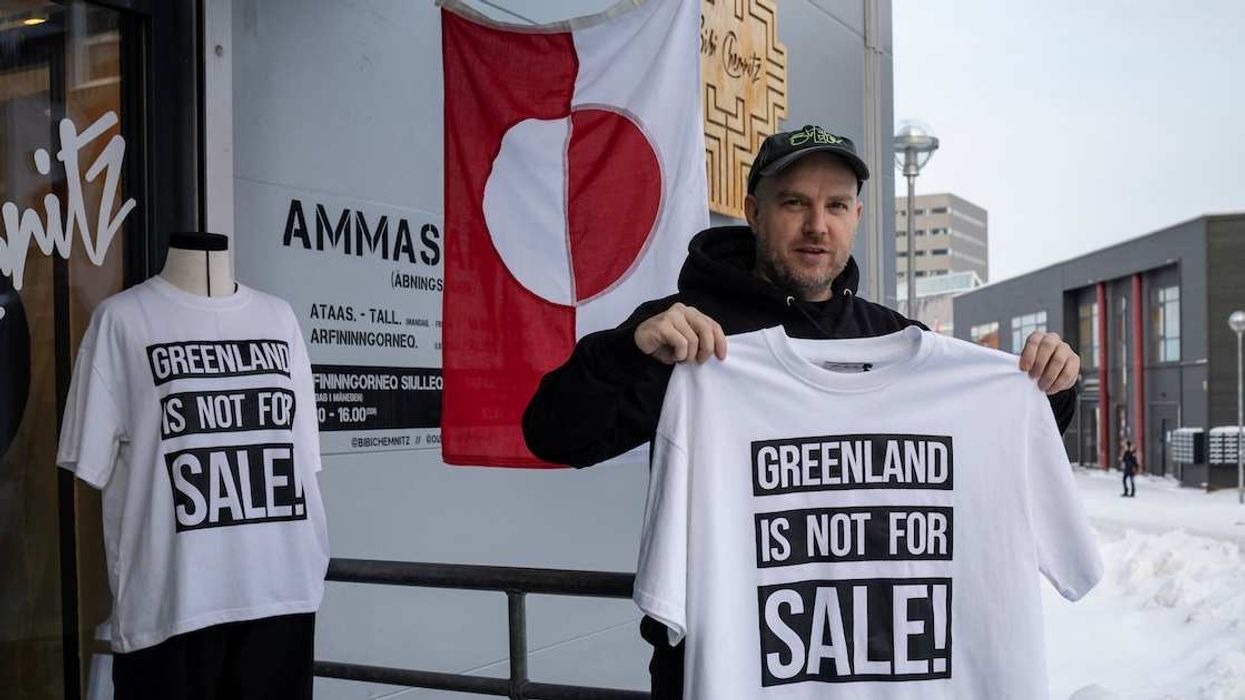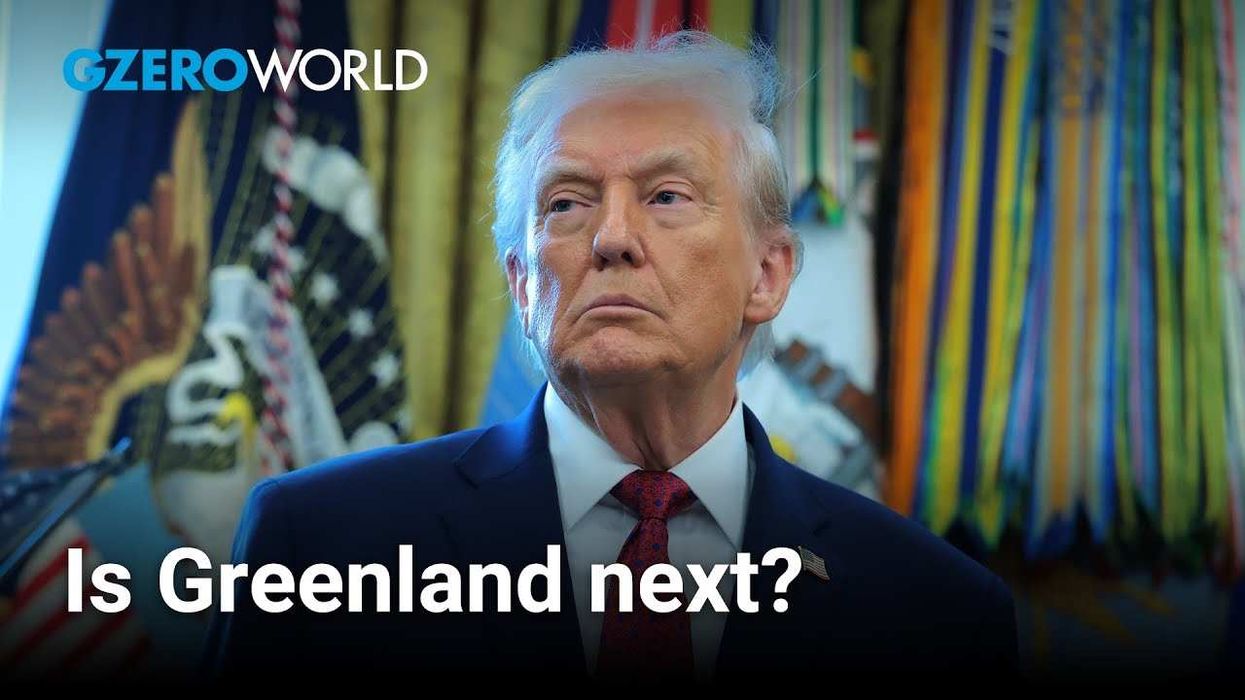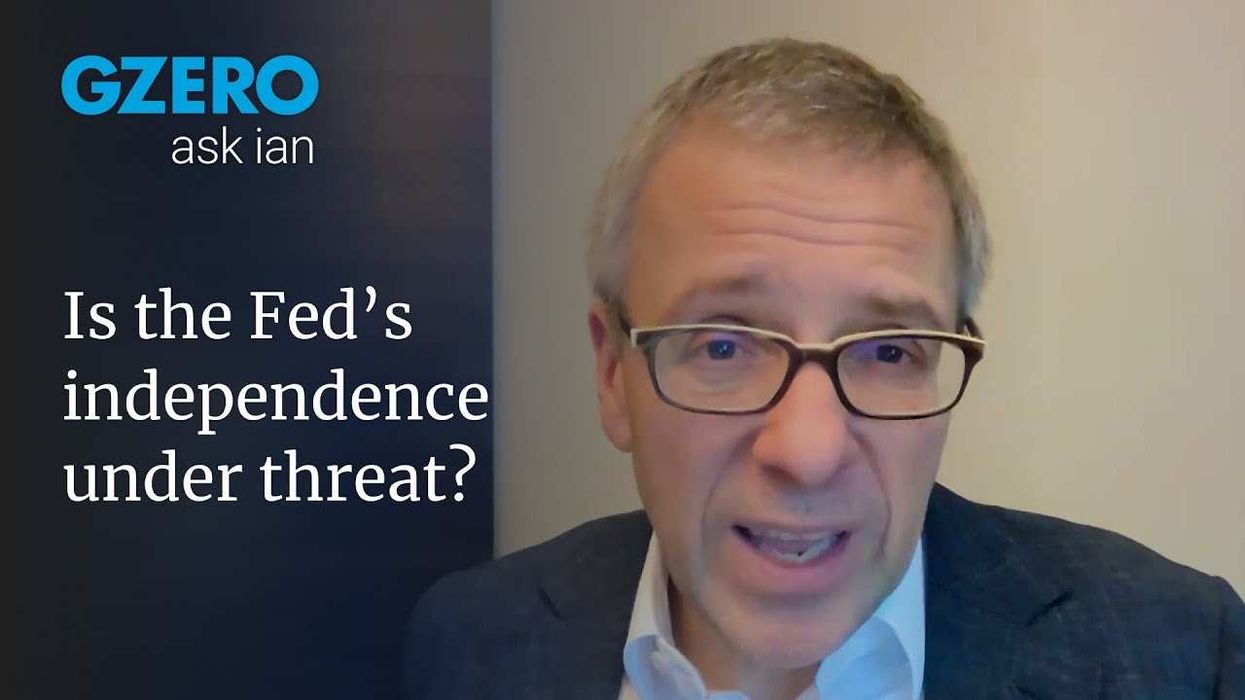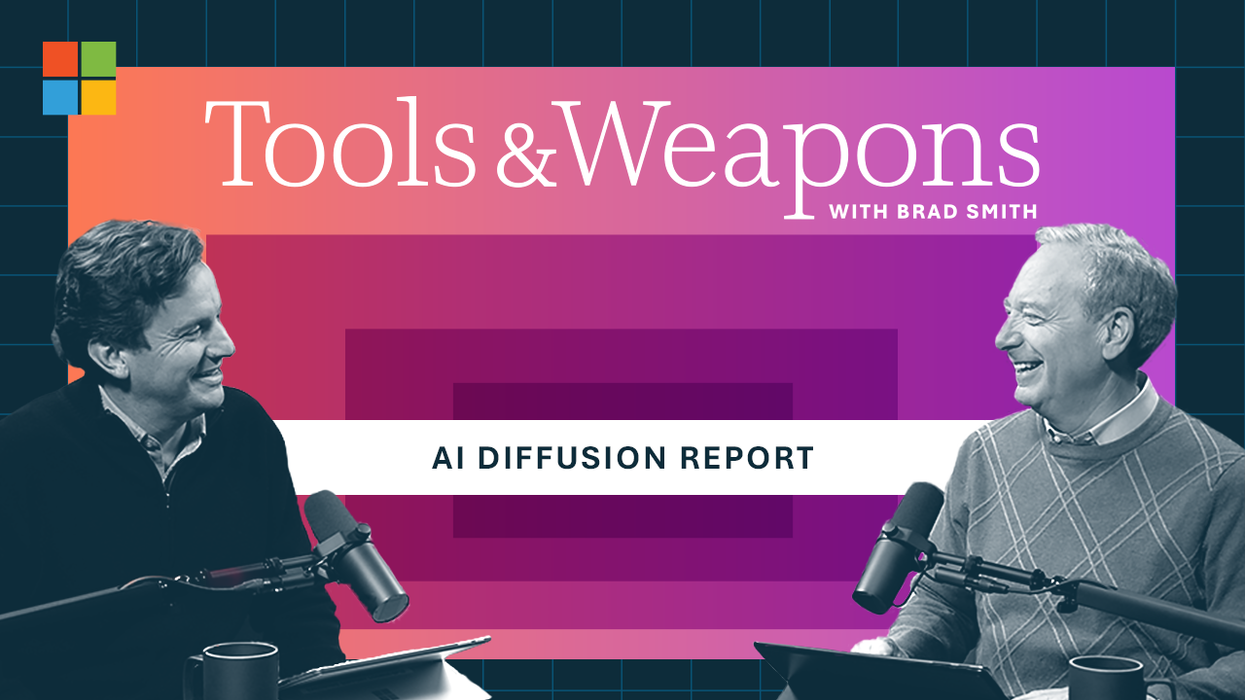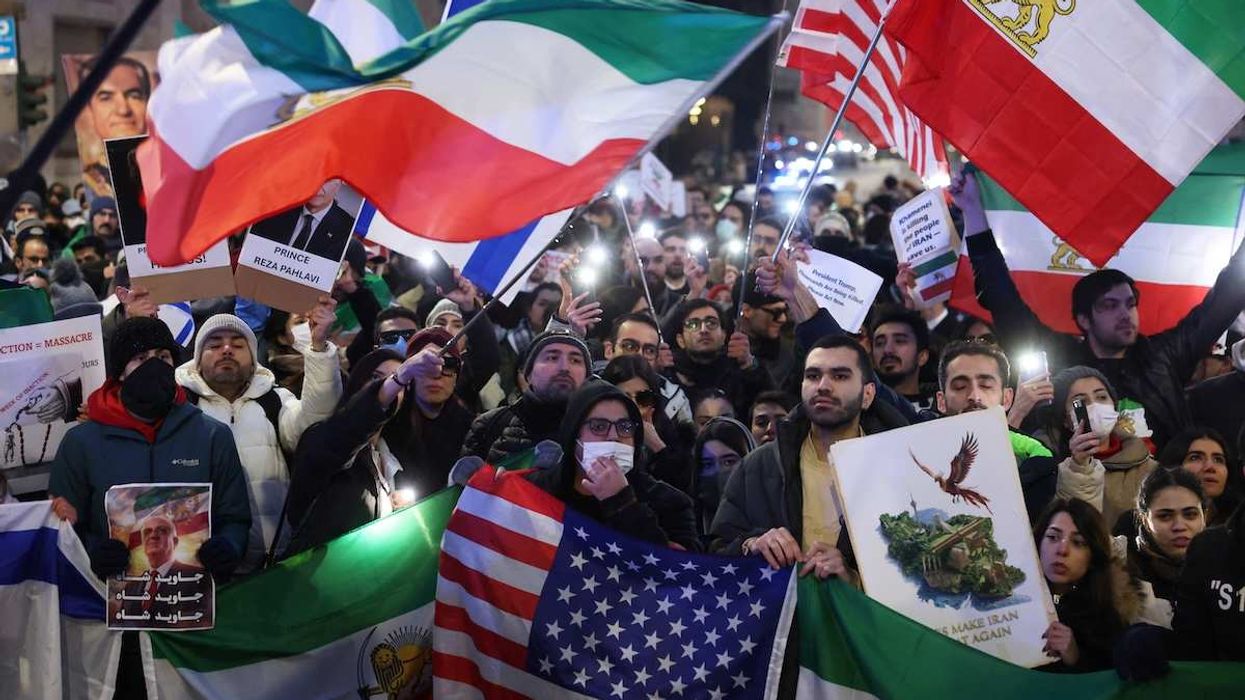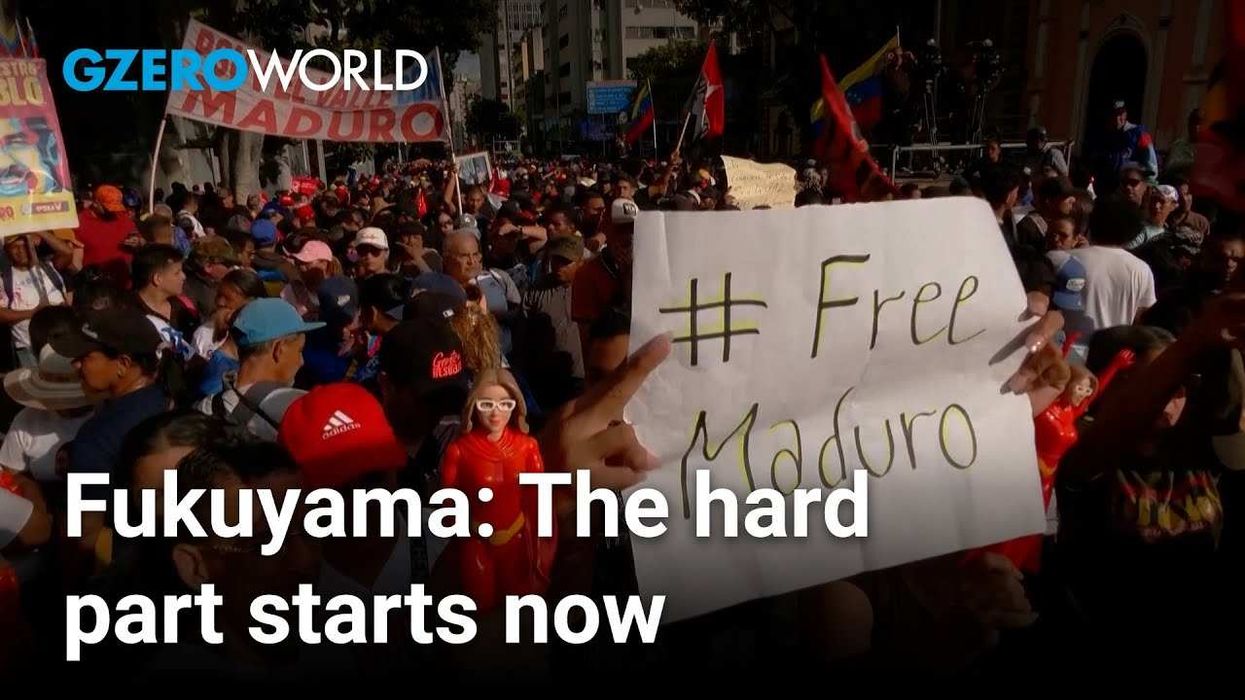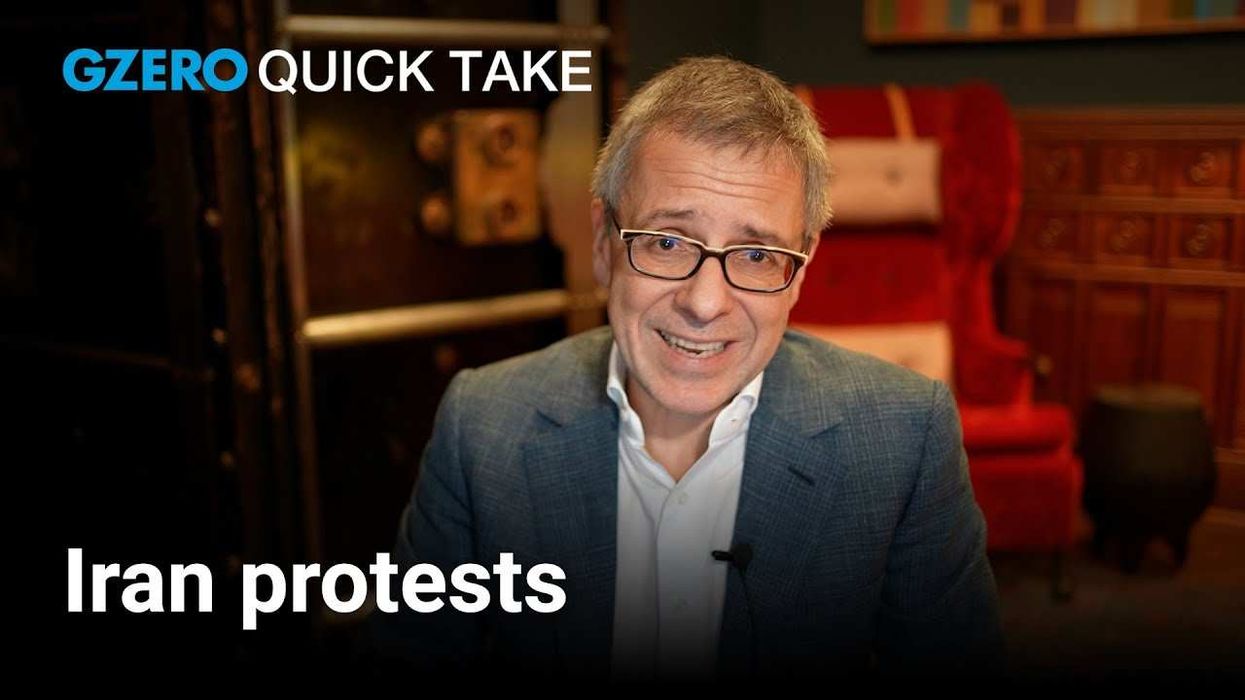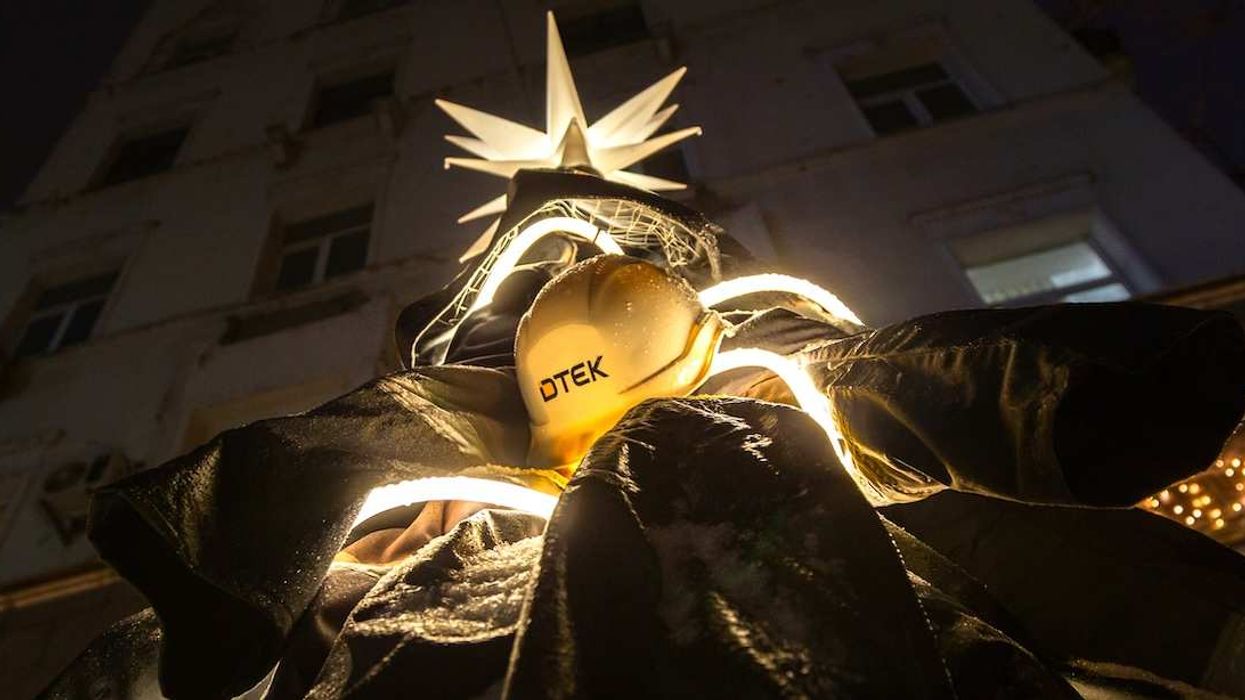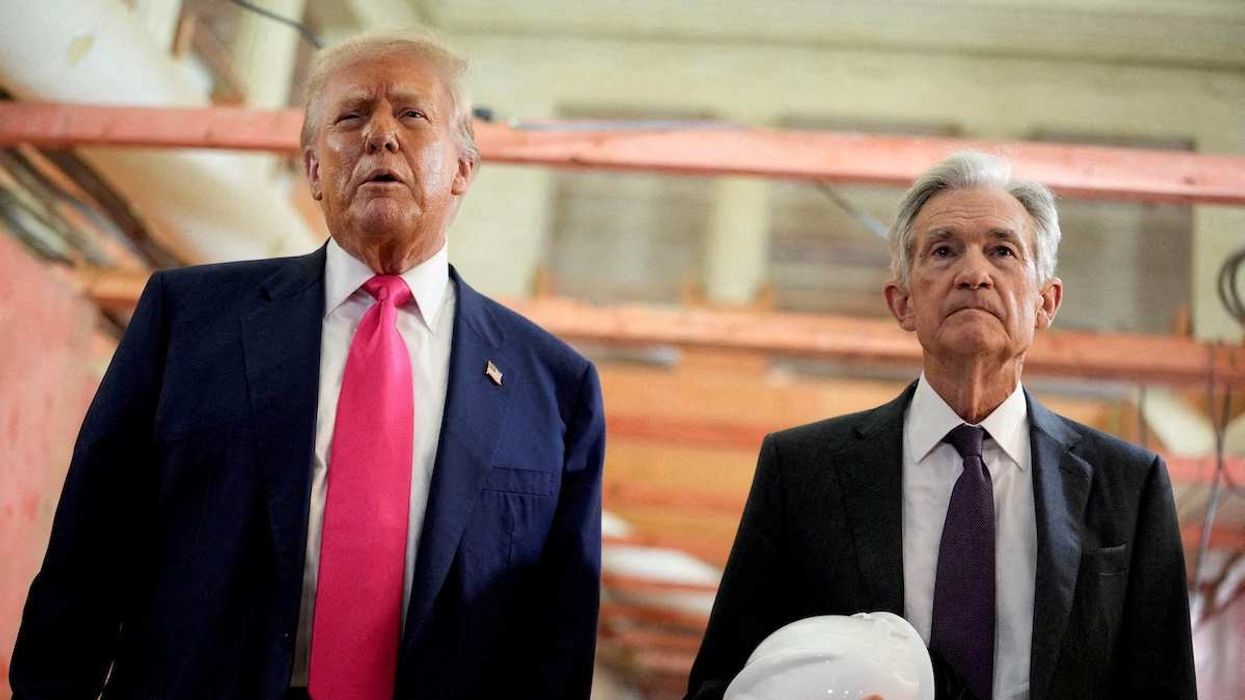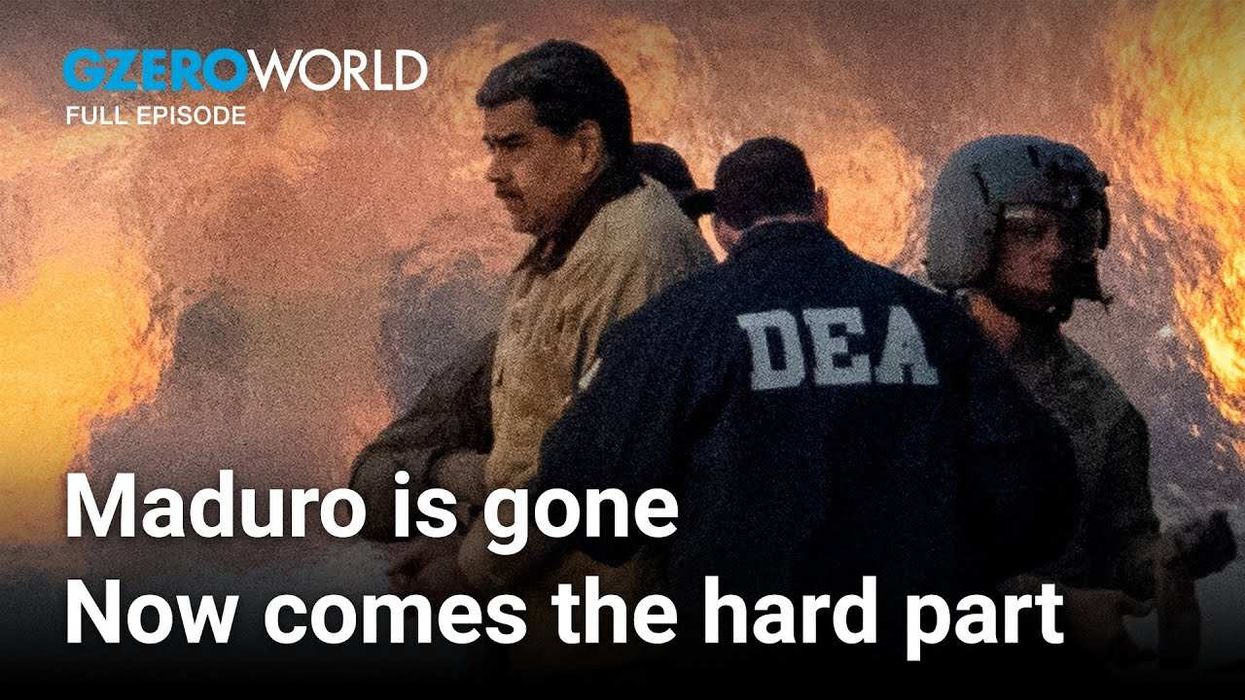VIDEOSGZERO World with Ian BremmerQuick TakePUPPET REGIMEIan ExplainsGZERO ReportsAsk IanGlobal Stage
Site Navigation
Search
Human content,
AI powered search.
Latest Stories
Sign up for GZERO Daily.
Get our latest updates and insights delivered to your inbox.
Global Stage: Live from Davos
WATCH
Asia
Presented by
Ian Bremmer's Quick Take:
Got through the Fourth of July. Pretty rough one for 2020 here in the United States. Still in the thick of it as we see caseload exploding in the United States. But really, the virus is all about developing markets right now. Poor countries around the world very soon, with the exception of the US and the UK, all of the top 10 countries around the world in terms of coronavirus caseload will be poorer countries. Let's keep in mind, these are countries that test a lot less, which means the actual numbers, in the United States the experts are saying probable likelihood of total cases is about 10x what we've actually seen in the US, in emerging markets and most of them, it's more like between 20 and 100. In other words, this is really where the virus now is.
Those countries have nowhere near the money to be able to ensure that people can stay locked down and out of work and safe for a long period of time as we have been able to in the United States and Europe and Japan. They aren't going to get enough aid to make up the difference internationally. And, you know, populations are younger. Life is cheaper in these countries. A lot more people die from, they have lower life expectancy, they have worse health care, and so the willingness to, you know, tie yourself in knots over the latest dangerous disease is much less than in a country where every additional person that dies drives political outrage. And it should not be that way. But it is that way. So, you're seeing different policies as a consequence.
That means de facto herd immunity strategy. Doesn't mean de facto herd immunity, because we still don't know that herd immunity is something that you'll be able to get to. We don't know how long antibodies last. Your first studies now, with just a few months, this disease has been with us as humanity for six months, so we have no idea if herd immunity would apply and if so, to how many people, do you have to have symptoms that are hard or can it can asymptomatic people also have herd immunity? We hope we're going to get to a vaccine. I worry that the Chinese and the Indians are rolling out vaccines before they have adequate human trials, which means that the quality of the vaccines that lots and lots of people get may be considerably substandard and have second-order health effects that are negative. And it also means much more of a fight internationally. The biggest tragedy of coronavirus globally is the fact that the world is so uncoordinated, is so not working together either to ensure that people have treatment, that we have adequate medical supplies, that we have adequate economic response, or that we eventually have adequate vaccine. That is going to continue to make this much worse as a crisis than it otherwise would have been.
Now, here in the United States, of course, it is certainly good to see that the Trump administration, however late, is now tilting towards telling everyone you should wear a mask. If it was up to me, I would make mask wearing mandatory and I would enforce it and I would have significant fines if you don't. And I would also be looser in opening up economies. So that people could get jobs back, we could go back. I mean restaurants would be a challenge. Bars probably still no go because you can't keep masks on when you're doing that. But certainly stores, office places, all of that, places where people can come and get the economy moving. I want them to do it. But everyone has to wear a mask. And if not, it's really going to cost you. And yeah, you're going to lose some personal liberties, but you're going to maintain your job, your well-being. The economy will do better. And soon enough, we won't have to do it anymore because we'd then be able to get low enough numbers of new cases that we could do the contact tracing that we don't have the people for right now. We could do the quarantining, that we don't have the tests and the people for right now. You've got far fewer cases before the number of tests and contact tracing that America presently has is adequate to actually get to a "we've defeated this virus."
Short of that, I'm glad that the Trump administration is saying "wear a mask." That's Ivanka. That's Kevin McCarthy. Even Trump in his soon to be rallies, they're handing out masks to everyone and they're going to tell people that you should be wearing them. That's a good thing. And I wish it was happening three or six months ago, but better now than three months from now, especially for an administration that thinks they're losing on coronavirus and doesn't want to talk about it very much. I mean, you saw the Mount Rushmore speech, and this was a pretty significant electoral rally speech and coronavirus was really not even mentioned. And that's in large part because they recognize that it's not a winner for them. They're doing badly on it. So, given all of that, the fact that they are now pivoting towards "wear a mask and get everyone to do it," does show that they want to have more of a handle on this or they fear losing in November. And for the good of the American population and the global economy or the largest economy in the world, I'm really glad for that.
You know, even Dr. Fauci, who's someone I like quite a bit personally, but remember when at the beginning he was saying, "don't wear a mask, we're not sure does anything." And the reason he was saying that is not that he thought that was true. He knew it wasn't true. But America didn't have adequate numbers of masks. They were concerned people were going to have a run on them and there wouldn't be enough for people in hospitals. That's unacceptable in a country like the United States. A couple of months after we knew that there was a pandemic in place in China. And I mean yes, we lost a month because the Chinese covered it up. But we need to know better. We need to do better than that. So, deeply frustrating from my perspective. Plenty of blame to go around.
People asking me why I don't focus on the states, it's because mostly I focus on the national level and around the world. But certainly if you focus on the states big mistakes made here in my own New York in terms of getting people out of the hospitals and forcing those with coronavirus to be taken back in elderly homes, assisted living facilities led to vastly more people getting killed than otherwise would have happened. We've seen big mistakes and opening too fast in a lot of states like Texas and Florida, despite Centers for Disease Control guidelines, they were being ignored. And as a consequence, much more spread than we otherwise would have seen. These are horrible things and they're leading to the United States right now, leading the developed world in terms of numbers of cases and also having considerably more deaths per capita than in Japan, than in South Korea, than in Canada, than in Germany. And then in Europe as a whole, though there are European countries that have more per capita deaths than the United States does. But we should be leading.
We should be doing much better than Europe. Remember, the pandemic only hit the US in scale 10 days after it hit Europe. Therefore, we should have learned from them. Two weeks matters, an immense amount in a pandemic. Our numbers should be better. They're not. And why not? Because at every level of government, we've done a bad job. And the media and social media are also helping people not know what to believe, not know if this is something they should really worry about or if it's fake news. And when you're not leading with science, when the country is immensely divided, then you politicize coronavirus, too. And that ends up killing and enfeebling a lot of people.
Final thing I would say, it is certainly true that our death toll in the United States looks a lot better right now than our caseload. There are two things you really should focus on: First is that death is by definition a lagging indicator. And especially when mostly young people are getting the disease right now. But the next order people, when they come home, they have the disease. They don't know they have the disease because they're asymptomatic. And we don't test enough. 10 times more people have the disease than we know about in cases that older people will get it. So, then you'll actually have fatality rates go up. And also, let's keep in mind, we do not know what the long-term implications for health and for the economy of people that have this disease and don't die from it. And certainly, we've seen lots of people, including young people, continue to have significant challenges with their own personal health, with their breathing, with their sense of smell, with their energy levels, with heart, other issues for months. And we've only had six months and only three months in the United States with large numbers.
So, I don't feel really good about the fact that we've got, you know, a few million cases in the United States and maybe 10 times that in actual numbers of people who got the disease. We have no idea what that's going to do to their health in 10 and 20 years time. Their life expectancy. Their ability to work. Their ability to live functional, happy, productive lives. So, none of this makes me particularly happy right now. But at least top down, you get a feeling like they're taking it more seriously now than they were two weeks ago. I think that's true with the governors. I think that's true with the president and the administration. That's better than the alternative.Keep reading...Show less
More from Asia
What to know about China’s military purges
January 28, 2026
Five forces that shaped 2025
January 28, 2026
What’s Good Wednesdays™, January 28, 2026
January 28, 2026
Two US borders, two different approaches to Trump
January 28, 2026
Walmart’s commitment to US-made products
January 28, 2026
GZERO Europe
Jan 27, 2026
ask ian
Jan 27, 2026
China’s economy is growing, but it’s stuck in a deflationary trap
January 27, 2026
Building community-first AI infrastructure
January 27, 2026
The world economy is resilient, despite tariffs
January 27, 2026
Quick Take
Jan 26, 2026
America’s WHO exit leaves a leadership vacuum
January 26, 2026
Economic Trends Shaping 2026: Trade, AI, Small Business
January 26, 2026
Stubb: Russia is losing in Ukraine
January 26, 2026
Why space tech investment matters
January 25, 2026
Why trust is essential for AI adoption
January 24, 2026
AI in shaping power, politics, and people
January 24, 2026
Europe's wake-up call, with Alexander Stubb and Kristalina Georgieva
January 24, 2026
GZERO World with Ian Bremmer
Jan 23, 2026
The leadership challenge of governing AI
January 23, 2026
Graphic Truth: Ukraine's energy crisis
January 23, 2026
Moldova’s leader considers whether independence is still worth it
January 23, 2026
Rishi Sunak on AI, sovereignty, and hard power
January 23, 2026
You vs. the News: A Weekly News Quiz - January 23, 2026
January 23, 2026
Which countries are leading the way in AI adoption?
January 22, 2026
Graphic Truth: the latest Cuban exodus to US shores
January 22, 2026
What does Trump want from a faltering Cuba?
January 22, 2026
Africa’s AI Future: China or the West?
January 22, 2026
Digital sovereignty in the age of AI
January 22, 2026
The Greenland crisis will test whether Europe can stand up to Trump
January 21, 2026
AI and the new world order: Global Stage live from Davos
January 21, 2026
Puppet Regime
Jan 21, 2026
Has the US-led world order ended?
January 21, 2026
Will Trump ever be satisfied?
January 21, 2026
What’s Good Wednesdays™, January 21, 2026
January 21, 2026
BofA awards $1 billion in stock to non-executive employees
January 21, 2026
Watch our Global Stage live premiere from Davos
January 21, 2026
Walmart’s commitment to US-made products
January 20, 2026
Building community-first AI infrastructure
January 20, 2026
Putin's "Special Military Operation" Bop
January 20, 2026
Hard Numbers: The first year of Trump 2.0
January 20, 2026
A new chapter for Davos: Dialogue, AI, and Global Resilience
January 19, 2026
Trump’s demands put Europe in FAFO territory
January 19, 2026
Trump's foreign policy is reshaping the world order
January 19, 2026
Why Trump is pushing to take Greenland
January 18, 2026
One year into Trump 2.0: How the world has changed
January 18, 2026
Trump's second term–one year in, with Stephen Walt
January 17, 2026
Ian Explains
Jan 16, 2026
Graphic Truth: Denmark’s losses in Afghanistan
January 16, 2026
The strange silence of Vladimir Putin
January 16, 2026
You vs. the News: A Weekly News Quiz - January 16, 2026
January 16, 2026
A tale of two protests
January 15, 2026
Why Trump’s Greenland threats alarm Europe
January 14, 2026
Will Iran’s protests bring down the regime?
January 14, 2026
Crypto goes steady
January 14, 2026
What’s Good Wednesdays™, January 14, 2026
January 14, 2026
Uganda’s “new breed” of leadership gets old
January 14, 2026
Trump targets Fed chair
January 13, 2026
Walmart’s commitment to US-made products
January 13, 2026
Venezuela owes China money. Will Beijing see it?
January 13, 2026
Frank Fukuyama on Venezuela: "This is a nation-building exercise"
January 13, 2026
US response to Iran protests
January 12, 2026
Dispatch from Kyiv, nearly four years into war
January 12, 2026
Economic Trends Shaping 2026: Trade, AI, Small Business
January 12, 2026
Maduro is gone. What happens now?
January 12, 2026
GZERO Series
GZERO Daily: our free newsletter about global politics
Keep up with what’s going on around the world - and why it matters.
